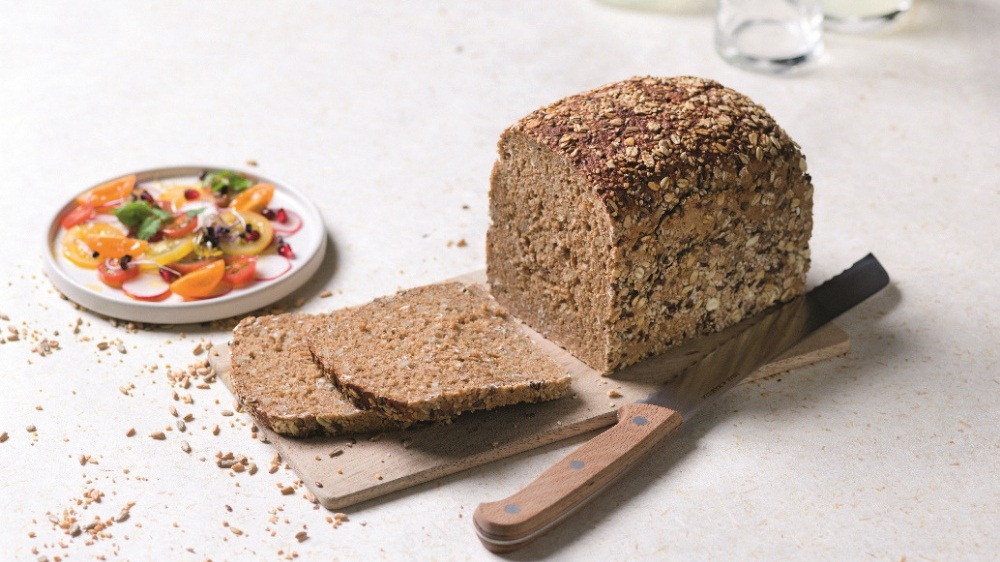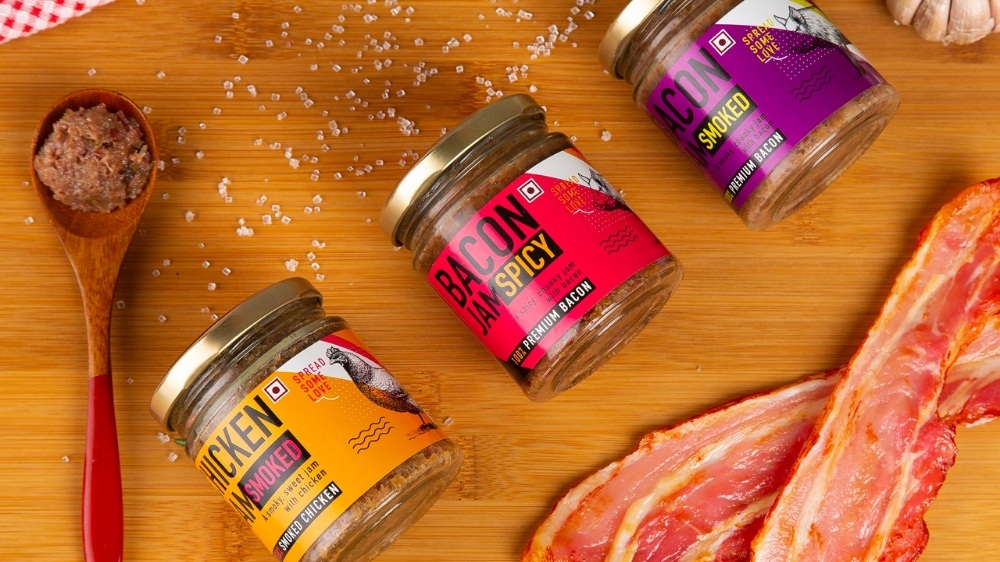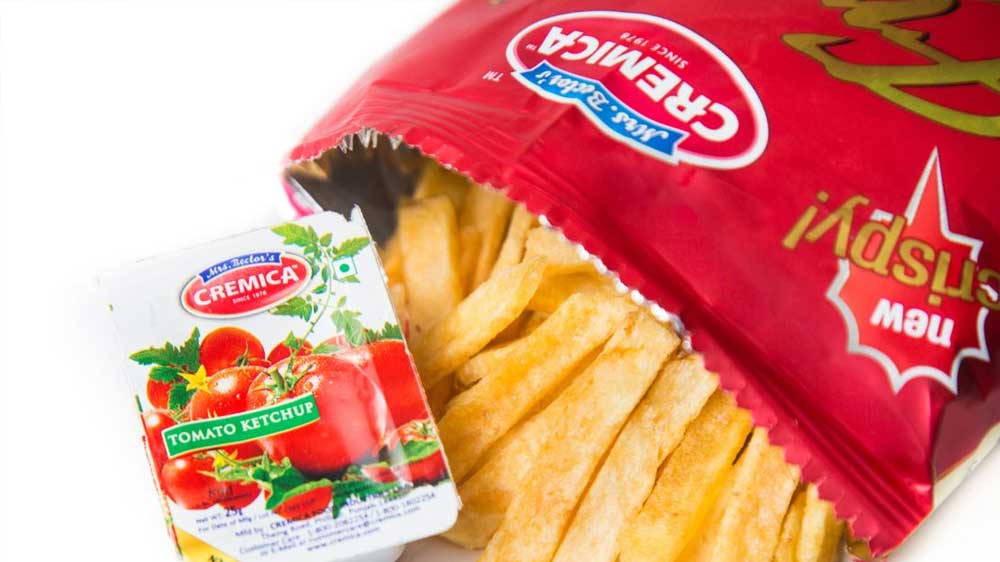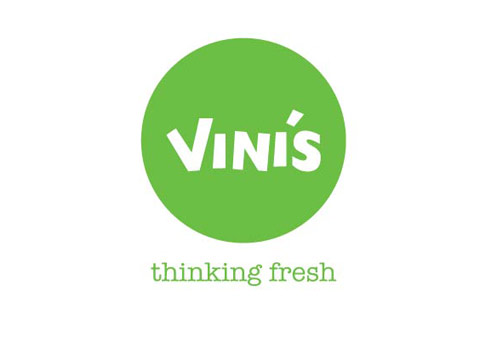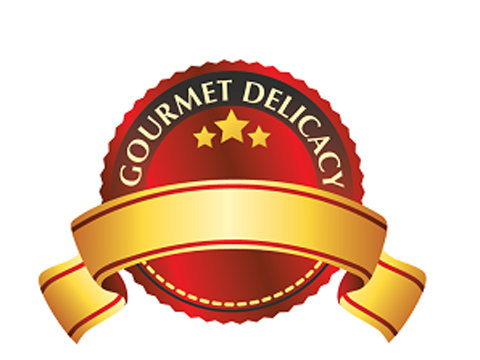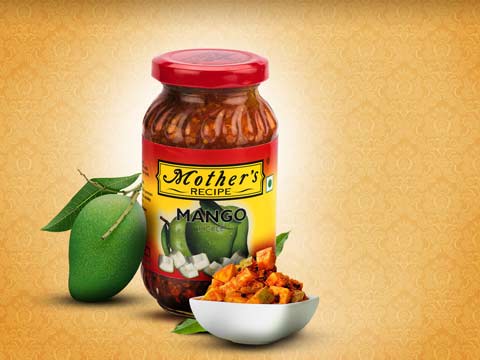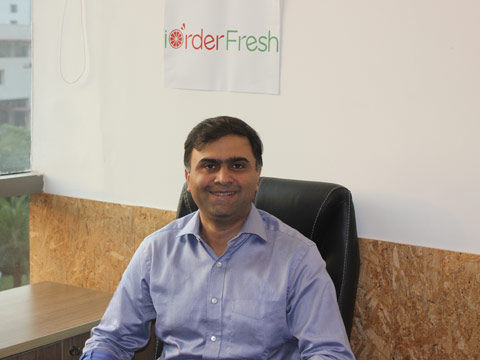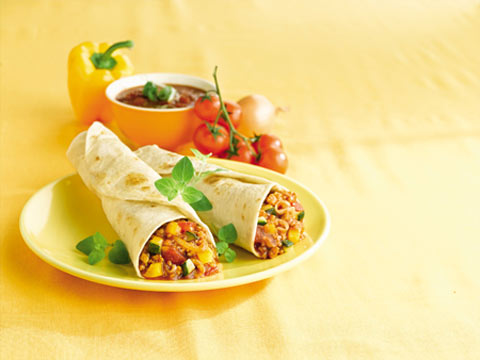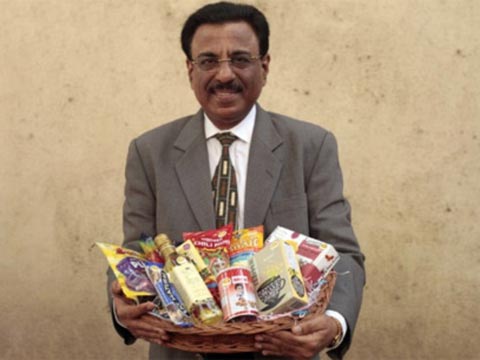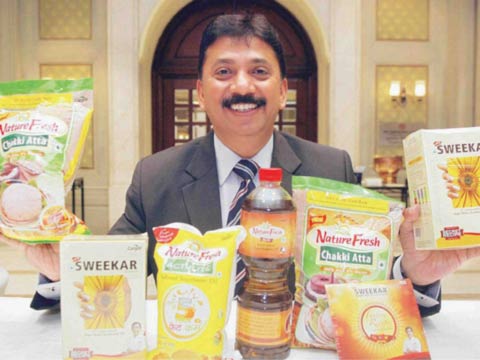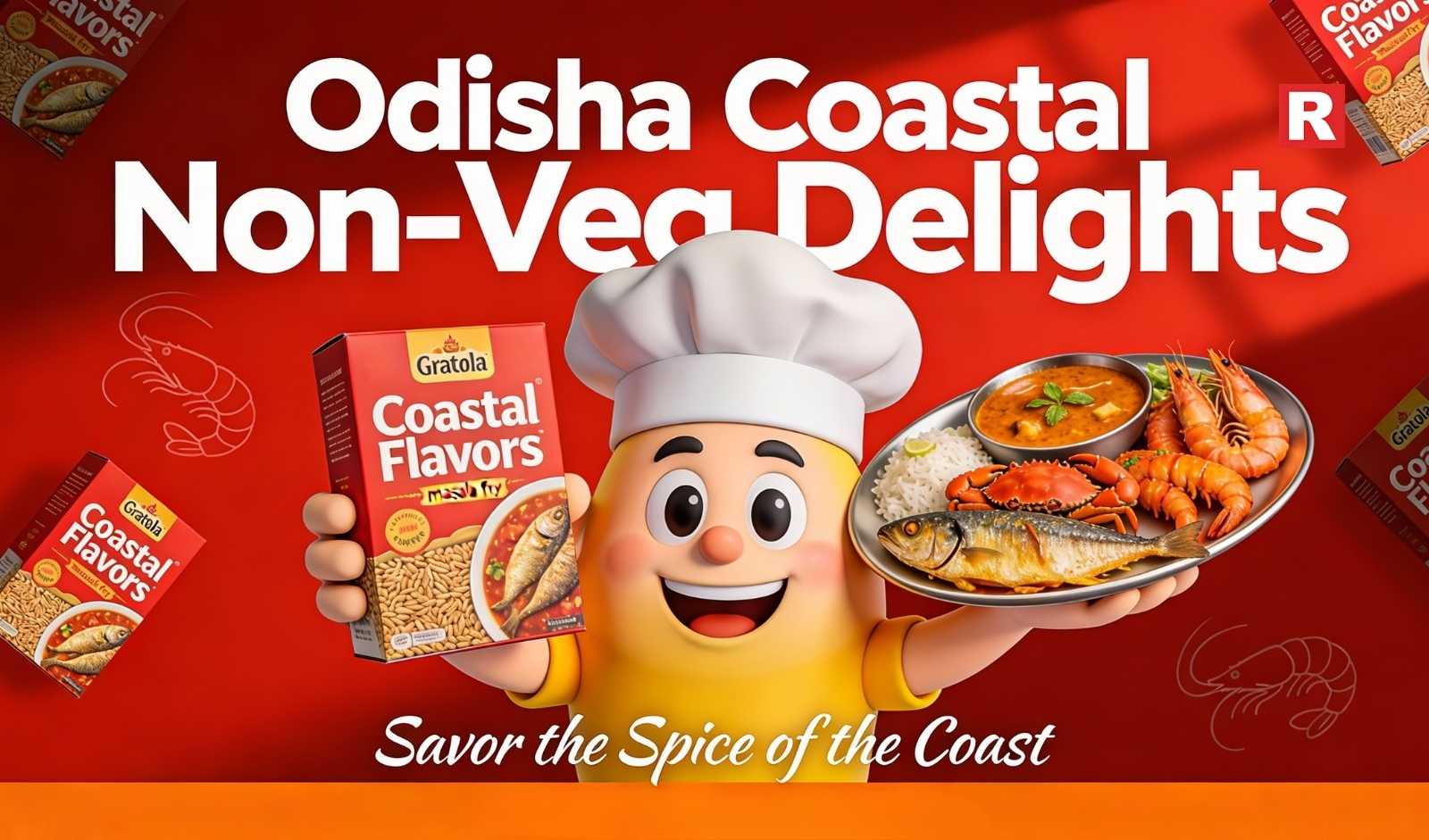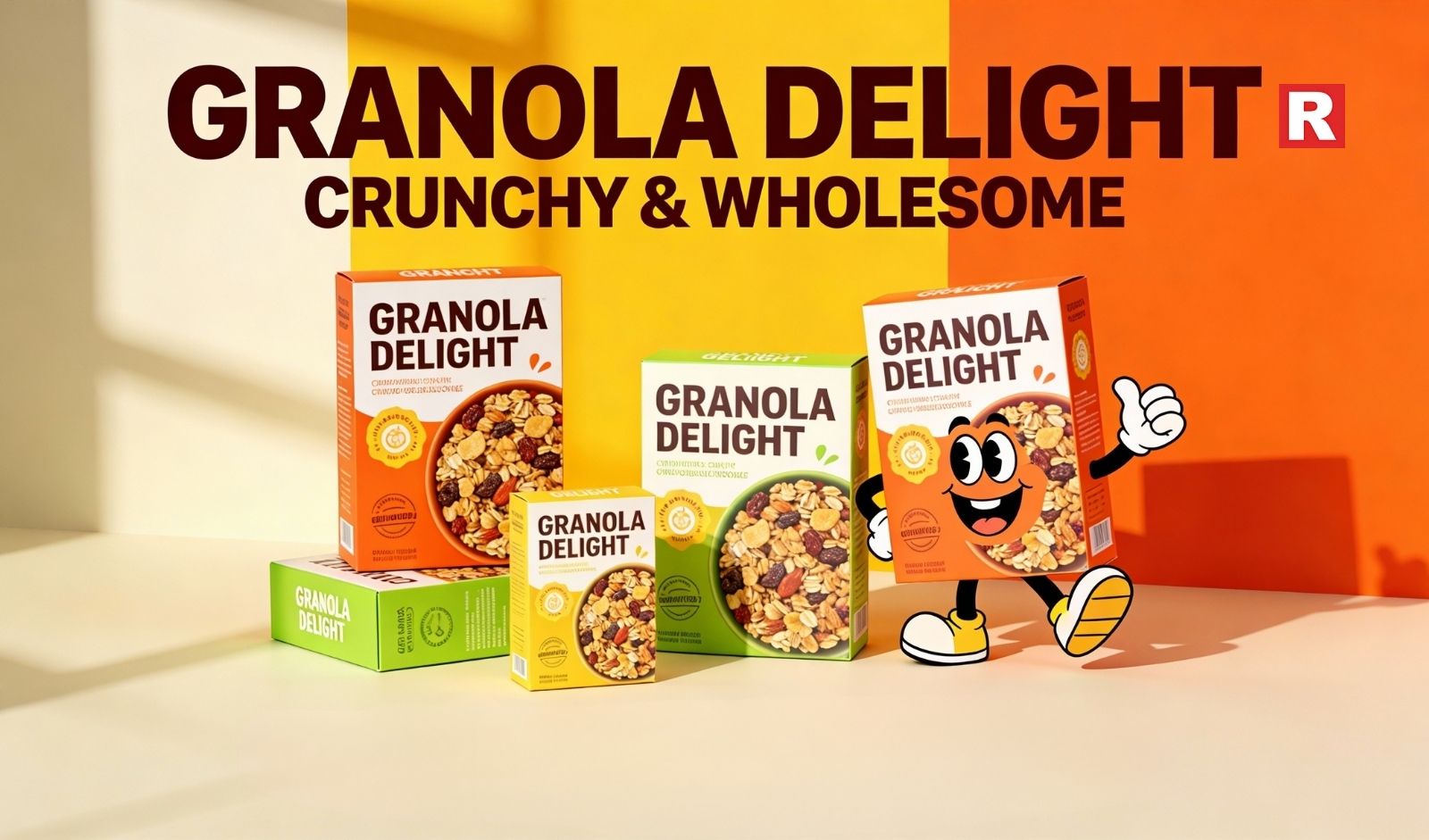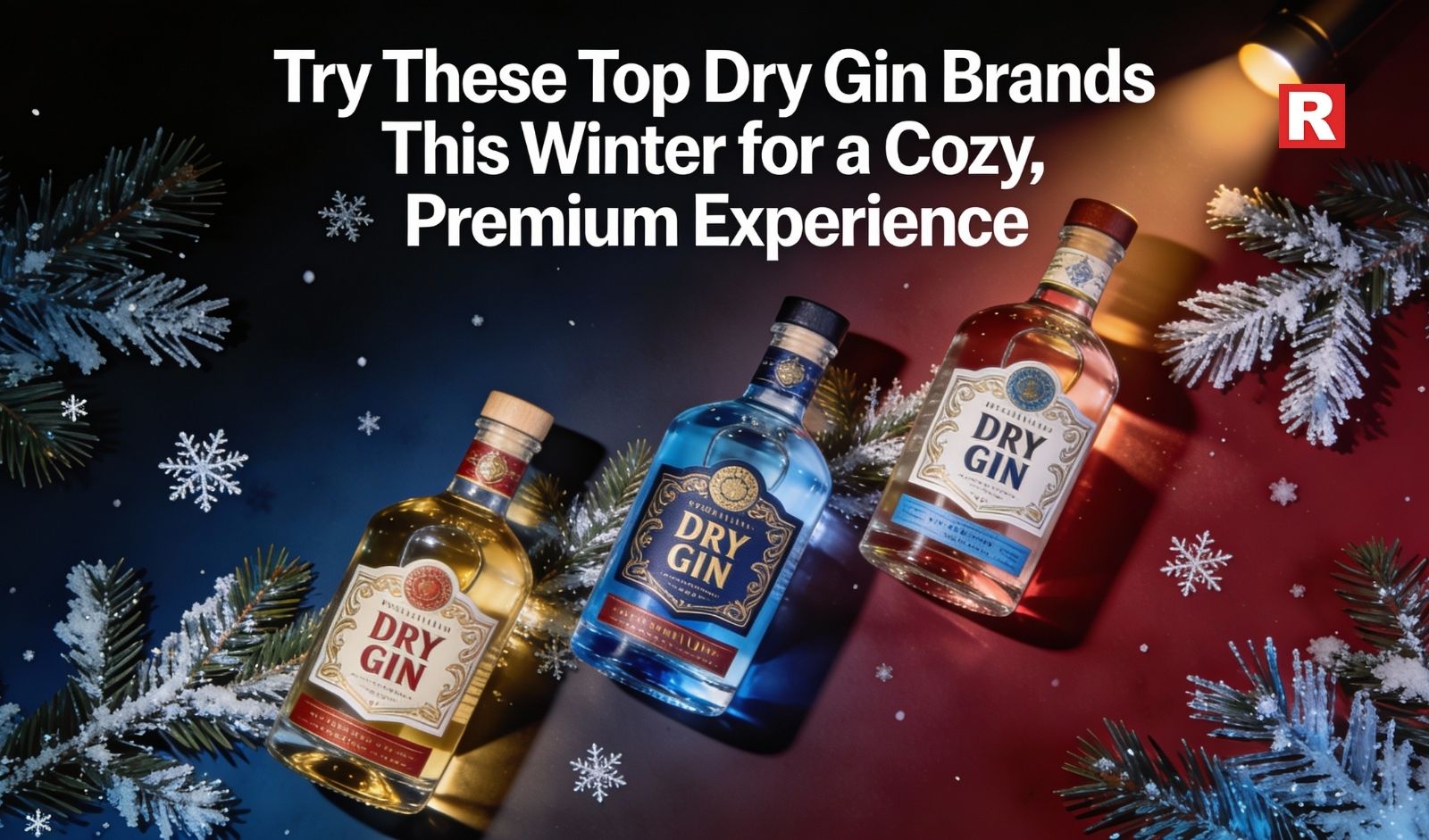
In an exclusive interview with Restaurant India, Chef Vanshika Bhatia, head chef and co-founder, Together at 12th talked about why it is important have zero waste in the kitchen, the challenges that she faces with the supplies and the significance of using local ingredients in the dishes. At the sidelines of the Indian Restaurant Congress 2019 event, she also spoke about the ‘Chef’s World Tour’, which is going to be held in Chicago next year
How sustainable is our menu today?
Let us, first of all, consider zero wastage. That is not an option and is something which has to be done to ensure that every bit of ingredient is used. For example, something as basic as coriander roots, which should not be thrown away. They are full of nutrition and can make your dish look great. So, why throw away something which is edible? There is a lot of effort that goes into growing something. It’s absolutely not sustainable for the farmers and the chefs. We pay for it; we ask for a kilogram of beetroot, we get the leaves and the beetroot. However, we peel the beetroot and throw away the leaves. Thus, the yield automatically becomes 50%. What we are getting is not worth of what we are paying.
What are the challenges you face with managing your supplies?
Sometimes when I don’t find something from the supplier, I just go to the market and buy it myself or ask one of the chefs or their families to send it from their houses. The only challenge that we face is with the software that manages the restaurant. We have to put in our recipes so that the inventory also gets updated on that software. If we sell one dish, and let’s say it has this much of a particular ingredient, then it will get deducted automatically from that software. This sounds quite good, but uploading all of that is actually very difficult.
We are a seasonal restaurant and keep changing our menu very regularly. It’s been five months and we have already changed it thrice. So, that is a challenge. It’s challenging to keep on uploading so many different recipes especially when we are using tomatoes in one dish and its seeds and skin in other dishes.
Why, in your opinion, is it important to incorporate local ingredients to the dishes?
Whatever is local is good for you. It is good for the farmers. The money we spend for importing ingredients, the same money we can give to our farmers. Everybody is talking about organic produce and how it is expensive. I suggest saving the money that you are spending on importing ingredients and give it to the person who is actually trying to do something good for you.
Could you comment on the Chef’s World Tour event?
We did this event last year in Netherlands, next year we are doing it probably in Chicago. It’s just a bunch of chefs who are travelling and cooking. That is what it is. We are also collaborating with a South Indian chef who works at a restaurant at Nadodi in Malaysia.
What are the culinary trends you have observed in recent times?
I think being sustainable is the most important trend happening right now. It is really good that it is happening because we really need to save our world.

Food has traditionally been a means of gaining an appreciation and knowledge of other cultures. It takes us on a gastronomic voyage as we look to uncover the diverse range of tastes and customs that other countries have to offer.
With more travel and chefs experimenting around food there has been lots of focus around indigenous ingredients and ingredients that has never been in focus earlier.
"Today, we're witnessing a revival, a rediscovery of the extraordinary flavors and nutritional value these native components offer. It’s a privilege to reinterpret these time-honored ingredients, to bridge the gap between tradition and innovation," commented Chef Sarfaraz, Corporate Chef, Passion F&B, Carnival by Tresind, Mumbai who uses ingredients like Togarashi, Yuzu Kosho and Shisho Leave.
"We have Lobster Vada Pav which is special as one can reimagine the version of the classic Mumbai street food, Vada Pav with influence from Japanese ingredients. We use Yuzu Kosho spread on the Pav (bread), place fresh Shisho leaves, and top the Vada Pav with Tofarashi Lasooni Chutney. We use Yuzu in Chica Picante to add a unique, zesty citrus note that enhances the cocktail's vibrant and tantalizing flavor," he added.
Use of Natural Ingredients
From ancient remedies to contemporary creations, native botanicals and fruits have significantly influenced the restaurant industry. They are the foundational flavor profiles that have inspired countless beverages. While globalization has sometimes overshadowed these indigenous elements, resurgence in their appreciation is now taking place. This is an exhilarating time to explore, innovate, and honor the diverse and rich flavors,
"We celebrate the versatility of fresh, natural ingredients by using them across both our food and beverages. Our signature cooler, Vasantneer, is crafted with fresh coconut water, a dash of organic honey, and a squeeze of lemon juice, enhanced with muddled mint leaves. We only break the coconut right before serving to keep it as fresh as possible," said Chef Sudhir Head Chef & Consultant, Tat Coastal Cuisine who added that coconut doesn’t just shine in our drinks; it’s also a key ingredient in many of our dishes, adding a rich, creamy flavor to our coastal cuisine.
The Kokam Sting, made with kokam and mint leaves, showcases the same ingredients found in their dishes. This innovative approach highlights the versatility of these ingredients, enhancing both their drinks and dishes with a unified, refreshing taste. At Tat Coastal Cuisine, this seamless blend of flavors across their menu creates a unique and memorable dining experience.
"We’re excited to showcase the versatile Cinnamon Stick in a fresh, new way. This spice shines in our flavorful Roganjosh, adding deep warmth and richness, and also makes our Hot Toddy cocktail special with its cozy, aromatic touch. By using cinnamon in both our savory dishes and sweet drinks, we’re offering a unique dining experience that blends traditional flavors with a modern twist. We’re thrilled to bring this innovative idea to our guests, turning a common spice into a standout ingredient in both our meals and beverages, " explained Chaitanya Bali, Owner, Nouba who said that we’re all about creating exciting, memorable flavors with a creative approach to everyday ingredients.

The popularity of Cold Cuts & Deli meat is finally finding its way home with Indian consumers experimenting with everything from prosciutto to salami to hams as part of their diet.
With India, currently, being the second fastest growing market for processed meat and poultry with a CAGR of 22%, it comes as no surprise that cold cuts are finding a share in the Indian plates right from breakfast to dinner.
Various factors are helping boost the popularity of this segment including consumers’ demand for convenience, the greater availability of a variety of cuts from manufacturers and the fact that many Indians are foregoing the vegetarian diet for a comparatively protein-rich meat diet in general.
The expanding urban population base, rising demand for on-the-go foods and increasing awareness about different cold cuts with travel and exposure are definitely some of the drivers for the current spur of growth in the Indian cold cuts market.
Besides the overall booming market for cold cuts, here are the top four trends we see in the Cold Cuts & Deli Meat segment in India:
The Shift in Consumption from Frozen to Fresh Cold Cuts
5 to 10 years ago cold cuts rarely delivered on consumers’ taste, availability and price expectations. Unlike International Markets, where frozen cold cuts are unheard of (and even looked down upon), the supply of Cold Cuts in India was being driven completely by Frozen Cold Cuts & Sausages.
In the last five years, the adoption of consuming Fresh Cold Cuts has been significant across the major cities with consumers foregoing the frozen cold cuts owing to the availability of far better tasting and nutritious fresh and chilled cold cuts.
The difference in taste between freshly-made hams, salamis and sausages versus the same cold cuts in frozen formats is so noticeable that customers are adopting these at a frenetic pace.
Once reserved to a speciality market and meat shops, conventional grocers across cities and feeder cities are slicing into the action with dedicated charcuterie counters stocked with fresh cold cuts to tap into the increasing demand for fresh & never frozen cold cuts.
Emphasis on Ingredients and Quality
Consumers, nowadays, are willing to pay much more for high-quality ingredients and quality. With growing health awareness among consumers, the result can be seen in the increasing demand for cold cuts using natural and healthy cuts like the use of certified hormone and antibiotic free meats in all sausages and cold cuts.
With information being readily available to consumers, this has served as a boon for manufacturers who have primarily focused on providing quality over others looking at only costs.
Further, producers are pushing the envelope to both differentiate their meats and to tap into consumers’ evolving palates. This has given rise to cold cuts and sausages with flavorful ingredients such as the use of Imported Spices and quality cheese inside the meats as well as smoky or spicy offerings.
Highlighting Claim-Based Labels
Today, consumers have become avid label readers and when it comes to meat products they are not only curious about how they are made but also how the animals are raised.
These traits are important to customers. Ten years ago, no one asked for “hormone-free” pork or where it came from—but now transparency is top of mind. From clean labelling and callouts to use of nutritious ingredients and brand transparency, the consumer trend towards health and wellness has placed focus on highlighting claims on the labels.
This makes sense, as health claims in deli meats overall are trending up. According to Nielsen, antibiotic- and hormone-free claims are up 15 per cent in volume, products labelled with no artificial preservatives are up 7 per cent in volume, while all natural is up 2.5 per cent in volume.
Sales of products and brands with a focus on transparency claims including free from artificial ingredients, sustainable and health-focused sourcing and quality ingredients have been the ones to grow over the past few years. Further, products made from heritage breeds—ones that were once raised by our forefathers and are humanely raised and bred for certain traits and consistency of taste and flavour—are getting a lot of attention.
Innovation based on Health and Evolving Palates
Everyone is still very focused on being more health-conscious and conscious of what they're putting into their bodies. Processed products have been notorious for having a concentration of sodium nitrate. However, the deli meat categories have taken leaps ahead been increasingly cooking up offerings to appeal to the health-conscious consumers.
Brands like Prasuma have provided consumers with choice and accessibility for purchasing their favourite cold cuts.
Consumers especially the millennials are increasingly choosing brands that are socially responsible, charitable and authentic. Fewer the ingredients mean a better product with highly wholesome attributes.
About the Author:
Lisa Suwal, CEO, Prasuma Meats & Delicatessen brand since August 2016.

Based on a recent Taste Tomorrow 2019 Survey, a global study conducted across 40 countries with over 17,000 consumers, people are placing more and more importance on consciously consuming healthy food which confirms that health and well being continues to be an important trend in the bakery, patisserie and chocolate industry. It is a trend that will continue to accumulate traction.
People want their food to contain ingredients which are natural and have an added nutritional value. Multigrain and seeded bread provide just the experience consumers are looking for with regard to taste and texture. Embracing the latest needs of consumers for relevance, authenticity and naturalness, Puratos India’s Puravita and Topfil Range of products offers vitality by bringing the taste, health and well-being only grains, seeds and fruits can offer.
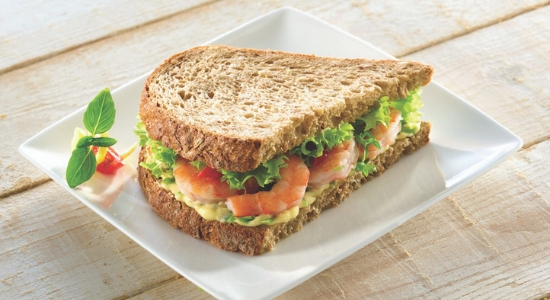
Puratos is a Belgium-based MNC with local subsidiaries in about 68 countries. Puratos Products are manufactured in more than 58 plants spread over 5 continents and sold in over 100 countries. Puratos India was established in 2008 in Mumbai, India. It manufactures and supplies a wide range of quality and innovative ingredients for bakery, patisserie and chocolate businesses. It also offers marketing tools and solutions to identify and suit the needs of customers and encourages excellence through training, demonstrations and exchange of ideas in its Innovation Centers.
Bread made from the Puravita range of bakery mixes have improved nutritional value, are rich in fibres and minerals, contain limited salt making them a perfect contribution to a healthy balanced diet filled with mouth-watering elements for taste. The Puravita range has three bread mixes – Easy Puravita Multigrain, Easy Puravita Brown Bread and Easy Puravita Whole Wheat.
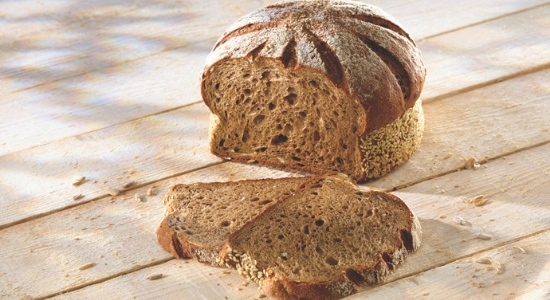
Easy Puravita Multigrain mix contains an exclusive blend of 11 carefully selected seeds and grains which provide a perfect harmony between taste and nutrition. This versatile bread mix can be used for making pizzas, focaccia bread, snack bread and many more. Easy Puravita Whole Wheat as the name suggests is made from 100 % whole wheat flour making it, a good source of essential nutrients, a healthier product in line with the global market trend of Health and Well-being. Easy Puravita Brown Bread mix is a bread pre-mix made of malt flour and whole wheat, which makes it a source of dietary fibres.
Puratos India’s Topfil range of fruit fillings is another pivotal innovation that contains up to 50% of natural fruit, giving customers the nutrition of fresh and juicy fruits. The range of delicious fruit fillings is ready-to-use and meets the most demanding requirements of professionals by being freeze-thaw stable. Available in Topfil Cherry, Topfil Blueberry and Topfil Pineapple, it is the perfect solution for professionals looking to offer more natural and healthy, yet tasty food to their consumers.
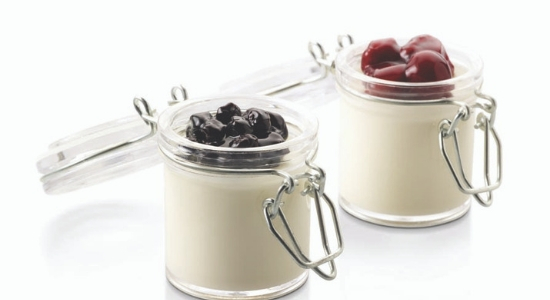
Health and well-being will continue to be a major factor which will test the scope of innovation in the bakery and patisserie industry. With the Puravita range and Topfil range, Puratos India enables you to respond to customer demands for healthier products combined with a delectable taste.
Also Read: Price Hike Accounts For Low-Profit Margins In The Bread-Making Business, Says Vikas Gupta

It is often seen when life gets busy, fitness always seems to be the first item dropped from the to-do list. Farm2Fam promises to be a quick fix for your daily intake of nutrition. Their micro greens produce is an exceptional amalgamation of traditional Indian agriculture method and the latest technology of insulation and automation.
Insulation Technology
For insulation technology, we control the temperature and the humidity of the environment that they are grown in. It gives them the ideal temperature for growth. Benefits of using insulation technology to grow microgreens - Better yield, Lesser water, more nutritious and tastier micros.
Also Read: Why Daily Diners Must Make Informed Choices
Loaded with nutrition and having up to 40 times more nutrition than the fully grown veggies, Farm2Fam offers 40 exotic flavours which include - Swiss chard, Alfalfa, Nasturtium, Purple Kohlrabi, Sango Radish, Sunflower to name a few. Their spicy flavoured Pink Radish and mildly sweet Kale Micros are a great source of antioxidants that will detoxify and help reducing body fat. The combination of insulated environment, non-GMO seeds and farm practices enable them to grow strong, healthy and flavourful live micro-greens round the year which are delivered right at your doorstep.
Why Farm2Fam is unique?
Keya Salot, Founder of Farm2Fam, says, “Over time, I realized that there is much on-going climatic deterioration and never changing human habits pop up. With the changing environment, micro-greens are the best substitute for healthy food because it’s a perfect blend of taste and nutrition. I started working on sustainable urban agriculture with several industry experts to propagate and set up a system for nurturing healthy living. It is my endeavour to make these micro-greens in every household through Farm2Fam so that people do not suffer from lack of micro-nutrients.”
“None of the industry players grows microgreens in insulation in Mumbai,” says Keya Salot. “We grow around 40 flavours. Since we use the insulation technology in growing the micro greens, there is practically no competition,” she adds.
Why Restaurants Should Use Microgreens
Microgreens can be used in the kitchen as for display and can be used as well for table tops; help in decor!
It’s rich in flavour - peppery, spicy or even sweet taste. It depends on what micro green the chefs are using. The micro greens enable the chefs to add visual appeal as well as taste to the cuisines they serve.
Today it’s not only Indian mothers who are making microgreens a part of their kitchen. There has been a growing demand for these shoots and tendrils from several fine-dining establishments. Catering to this demand, Farm2Fam has collaborated with Four Seasons, ITC, Illuminati, Taj Lands’ End, celebrity Chef Vicky Ratnani, health coach Luke Coutinho, nutritionist Pooja Makhija and many more.
Also Read: This Brand's Cold Extracted Drinks Are As Good As Fresh Fruits
Expansion Plans
In the coming years, Farm2Fam targets to acquire more than 300 customers every month and be aligned with more than 100 restaurants in Mumbai. They intend to bring forth more exciting flavours such as blueberries, raspberries, wheatgrass and barley grass respectively.

A post graduate from Symbiosis Center for Management and Human Resource Development, Pune, Lisa Suwal hails from the family of leading meat purveyors in the country – Prasuma. Growing up in a family involved in delicatessen business for over 30 years, she has always been exposed to the nitty-gritty of the business and the art of making good food. A young and seasoned marketer, she is known for her innovative approach towards brands and alluring business perspective.
Gaining the outer world experience and understanding the key challenges faced by the unorganized meat industry, Lisa joined Prasuma in 2017. Her sheer perseverance and cognitive approach helped her in building a formal business structure and streamlining the processes which are the major challenges faced by any family business. Right from the beginning, she spearheaded in all areas of the business –from store to floor to an overall brand level. Determined to not let Prasuma become just another meat brand, she pays special attention to quality and the packaging of the products. All the products are vacuum skin packaged using barrier films imported from New Zealand which is considered to be the best in the world.

Lisa Suwal, Vice President - Marketing and Sales of Prasuma, tells Restaurant India about the strategies she has implemented in staying ahead in the industry segment.
Journey Prior to Prasuma
Prior to my journey with Prasuma, I was working with L’Oreal for six years. I started as a summer intern and joined Mirang where I handled big brands like Maybelline, Garnier, etc. My key responsibility was to manage the sales and marketing of the brand. I had also tried my hand at digital marketing and new product development.
Three Key Learnings in Marketing and Sales in the Food Industry
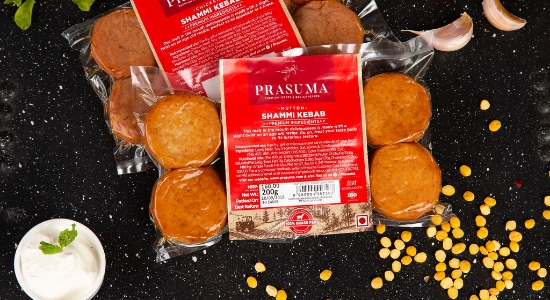
The three key learnings for me in marketing and sales are:
Providing quality over everything else is the key to success!
If I have to identify one reason for the success and popularity of our brand Prasuma among consumers, it would be quality over anything else. Even though we have never done any ATL marketing activities in history, the brand today is known for pioneering the Fresh & Chilled Deli Segment. While rest of the brands continue to focus on frozen cold cuts, we ensure all our products contain only meat and no fillers (a tactic to reduce costs) and use the best premium antibiotic and hormone-free meats even before this became a safety parameter in India.
Innovation is Critical
In the much-cluttered food space, innovation is the way to stand out! At Prasuma, every quarter, we launch 2-3 new products. We constantly change our products, packaging and recipes to ensure customers should get the best and we remain in sync with the evolving tastes of our customers. The food industry is saturated but identifying new trends and food habits which enable us to continue innovating new products.
Also Read: 92% Repeat Consumers, 15% Month-Over-Month Growth: This Brand’s Secret Is Worth Knowing
Partners and Consumer Relations
The food industry has a very complex structure today. We continue to understand our partners through the processing chain, right from our farms to the retail companies along with the staff which is absolutely critical as they are the ultimate ambassadors of the brand.
Customers and Partners
Prasuma is the number one brand and pioneer in fresh and chilled deli meat segments in India. We started with chilled and deli meats and now are among the top brands across all retail outlets in this segment. Our consumers and partners are Nature’s Basket, Food Hall, Spencer's, Hyper City, Walmart, Big Bazaar, SPAR along with international brands like Pizza Express, IHOP, Jimmy’s Pizzeria, Chili’s, Pizza Hut and over 500 restaurants all across India.
Key Challenges When Starting Out Prasuma as a Brand
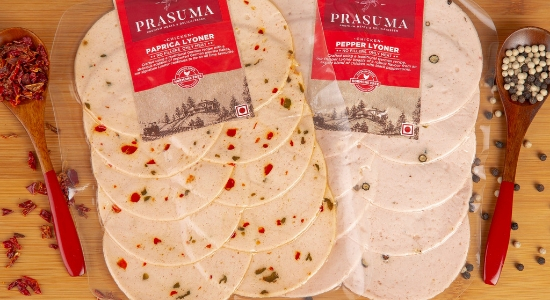
Challenge is being in the fresh deli meat segment. The fresh and chilled meat is a different ball game altogether. Here you need to have accurate infrastructure right from sourcing of the material till the time it reaches the store. The supply, processing and sourcing need to be perfect so that the consumers get the best quality product.
To overcome the challenges, Prasuma has state of the art processing unit facility at Manesar in Gurugram, which is completely ISO certified. We are equipped with the latest German technology. In terms of chicken which comes from big sourcing facility and for pork we have our own integration with farmers who were taught to raise the right kind of pork, to get the best quality product. Without good ingredients, one can never get a good quality product. We also have our own distribution hubs in all four major cities like Delhi, Mumbai, Kolkata and Bengaluru. We make sure to store the product at the right temperature and supply at the right time.
Also Read: Here’s Why You Should Consider Serving Kadaknath Chicken At Your Restaurant
Promotion Strategy with Prasuma Products
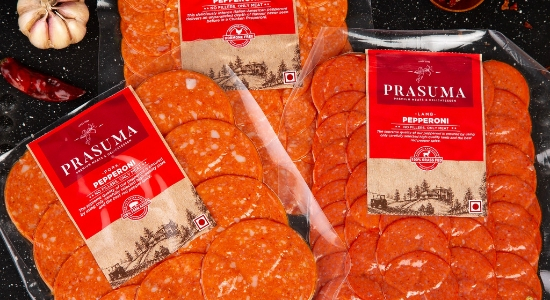
For the promotional activity, we focus more on digital marketing and prefer to do a lot of videos on how to use and consume the products. In India, people are not aware of such kind of products compare to sausages, salami, bacon which are part of an everyday meal. It is best to educate people about the right quality and usage of products, how to store and consume them. We advertise our products online and most promotions are in-store which talks about Hormone and Antibiotic Residue-Free meat through cooking and recipe videos.
Staying Ahead of Competitors
The strategies we implement to stay ahead of our competitors are the innovation of products at every step and provide the best quality with no compromise. We believe in staying in touch with the customers and their taste profile.
Upcoming Products
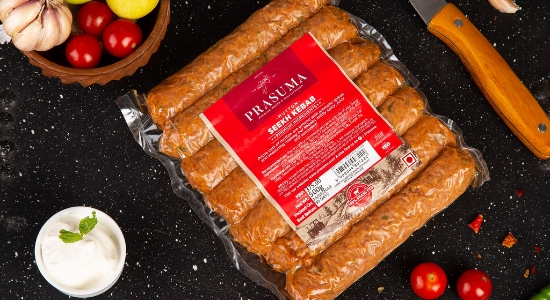
Our product quality has always remained consistent, and that’s a big reason for our steady growth. We focus on constant innovation of the products. Our main focus is on the institutional range for sausages, bacon, ham respectively which are good quality products and come at an affordable price for the hotels and restaurants. We have got a lot of queries and we are planning to launch a perfect range for the hospitality industry.
Expansion Plans
Have a lot of exciting expansion plans, one of which is growing in the retail market and increase our presence in the hotel industry. There are ready-to-eat products which we are planning to launch, for which we will talk about in due time.
Peak Business Season
The peak business season for us is winters from November to January and slowest is the quarter from April to June.

Vikas Gupta, Director, Sales at Harvest Gold, has been associated with the company since its inception. He is an expert in implementing the first-of-its-kind and innovative strategy to establish the bread market.
“I had joined Harvest Gold 25 years back as an Executive and now I am Director Sale that clearly indicates that as the company has grown, so has the employees of the company who are hard-working and can lead from the front.”
~ Vikas Gupta, Director, Sales at Harvest Gold
In an interview with Restaurant India, Director, Sales at Harvest Gold, Vikas Gupta talks about the challenges and opportunities in the bread-making business in India.
Harvest Gold’s Growth and Expansion Plans
Harvest Gold India has a turnover of Rs 400cr and, now, as we are a part of Grupo Bimbo, the global bakery giants with a turnover of 1600 billion dollars and having their presence in 32 countries. We as Harvest Gold India has a bouquet of bread, flatbread and buns (37 products) and more are on the launch stage.
Also Read: When Quality Drives Consumption
Harvest Gold has very aggressive expansion plans to go into new geographies with various categories apart from regular bread and buns.
Challenges in Bread-making Business in India
Being a perishable product, the bread industry faces various challenges.
- A major challenge faced by organized bread sector at present is the low margin of profits. Hike in prices of major raw material like wheat Flour/sugar/oil has been accounted for the industry low margin of profits.
- Trained manpower.
- Timely distribution from plants to the shops and then from there to the breakfast table of consumers.
Harvest Gold’s Contribution in the HoReCa Industry
As a leading brand, we are available to various HoReCa through the company's direct and various suppliers.
Our major HoReCa customers are railways, hospitals and several five-star hotels.
Bread Market in India
In the last five years due to lifestyle, preferences and increase in disposable income, the bread industry is growing at a constant pace.
Both organized and unorganized players are in the market. The consumers, however, would shift to bread manufactured by companies who have better technology and can produce in most hygienic conditions.

Tell us about Ray Honey and what is its uniqueness?
Ray honey is not a commercial honey. It is an organic, raw, unfiltered and wild forest honey. So I don’t need to explain the other terms but when I say it’s not a commercial honey I mean it’s unprocessed, it comes straight from the bee boxes which is not filtered nor processed, its raw honey. Secondly, as I said wild forests so these wild forests have a rich diversity of flora that allows the bees to collect pollens from various types of flowers and use them to make honey. The natural honey produced by this process is far superior and healthier as compared to the honey that is produced in most commercial farms. Another thing which distinguishes Ray honey is that only the best of uncontaminated honeycombs are hand-picked to obtain the honey, without using any unnecessary chemical processes. This also lends Ray honey better quality, compared to other brands of honey in the market.
How are you using Easy Snap technology. What’s its USP?
This is also one of the uniqueness of Ray honey that it is an easy snap technology. This makes the honey available in single sachets which are used with one-hand-sachet-opening technique. This innovative method of packaging honey in slim individual sachets is unmatched by any other brand in the Indian market. All one had to do is bend/fold the sachet in half and squeeze to let the honey out. These sachets are for one time use. Due to their ease of portability and leak-proof designs, these Ray honey sachets are perfect to be carried while travelling so Ray honey is more about convenience.
How is the packaging done?
We’ve a very specialized equipment which we bought from Europe and the entire packing process happens in that. The honey and the packing material goes in the equipment and it does the job.
What was the whole idea behind one-hand sachet?
The whole idea behind one-hand sachet is more of convenience as organic and raw honey is quite expensive and also if there’s a bottle of honey you have to take it in a considerable quantity whereas in the case of Ray honey you don’t have to worry about the quantity as it’s a one hand sachet which makes it convenient and mess free.
What is the price range?
Ray honey will be available in the market soon in two variants- one box of 10 sachets and one box of 30 sachets, which in itself would be a box of three 10-sachets boxes. A Box of 10 sachets- Rs. 150 /- , A Box of 30 sachets- Rs. 430/-
What is the market availability of the product? How about HORECA and retail tie-ups?
Ray honey is available in supermarkets, hypermarkets and online portals such as Amazon, Flipkart and Big Basket, etc. We haven’t really got into HORECA right now because we are still developing our institutional team but as soon as we develop our team we will be soon getting into HORECA and we’re already there in retail stores so honey will be launched in the coming week. We’ve started the listing procedures in most of the modern trade retail outlets like Godrej Nature’s Basket, Big Bazaar, etc.
As you mentioned that it is 100% organic honey with no preservatives. From where did you collect the honey?
It is collected from bees that roam free in the tropical jungles that border Maharashtra and Madhya Pradesh.
Where do you do the processing of the honey? Do you have a manufacturing plant?
We’ve tie ups with organic farmers who have their bee boxes and the moment they get enough collection of honey it comes straight to our plant from the forest for the packing because we’re not processing anything. So we can call it as a packaging plant.
Who do you see as the right target for your kind of a product?
Anybody who is health conscious, quality conscious and who prefers convenience.
What trend do you see in 2019 when it comes to healthy and natural eating options?
I think we’re all already adapting to healthy lifestyle because as you know our breads are no more white bread they are either whole wheat or multi –grain and same with the biscuits which are either digestive or multigrain. We all are already changing and people have become more health conscious. We cannot change our lifestyles or society pressures but we can always change our habits by adapting healthy ones.
What’s your expansion plan?
Right now we’re ready with our production and the packaging so the idea is to first place the products in our network of thirteen cities at present which includes Metro tier 1 and tier 2 and then we definitely plan to get into rest of India.

Over the years people have become much more conscious about what they eat and the calorie content in their diet. No matter if they are eating at a restaurant or travelling with a mini meal kit they want to know the calorie count in their food intake. To cut short, they are looking for low calorie options and diets. Going by this global trend stevia came into existence which is turning out to be a trending product when it comes to low calorie sweetener. PureCircle which started as a biotech company by a Russian to envisaged situation where the big companies are going to come back for calorie reduction or sugar reduction and needed a natural sweetener. The group went to different regulatory authorities from 2000 to 2008 showing them all the scientific studies and data that said stevia is safe. US FDA was the first to approve stevia as a sweetener and since then all the major countries approved it. Now, stevia is available in 65 countries and more than 5 billion consumers are already consuming it globally. After four years of struggle the product is now approved by the food regulatory body in India to market and enter the Indian market. Here are the excerpts from the interview:
Tell us something about Pure Circle and what do you do?
PureCircle is one of the leading producers of high purity innovation driven stevia ingredients. Since 2011, the company has provided enough stevia to eliminate 1.3 trillion calories from global diets. We take out the sweet part of stevia leaves and purify and extract out of it and identify that there are 40 such molecules in each of the leaves which is a natural sweetener. PureCircle is a leading company that is completely into the mining and refining of stevia leaves and bringing it as commercially viable sweetener and in some cases also as a natural flavor.
Why stevia? Sugar is also a natural component.
There is no doubt that sugar is also a natural sweetener but it has high calorie count that is the major issue. But sweetener like stevia has a low calorie and that’s the difference we are trying to bring to the society. We are on the move to educate people about the benefits of the product.
How are you trying to place stevia in the market?
We are not a niche player and are not looking to make stevia as a product that will settle for certain class of consumers. Our company’s vision is to mainstream stevia as next mass natural sweetener, see it in kitchens replacing sugar and sugar products. And, I think it is a great ingredient and we need to create awareness about the product. We are starting with baby steps first and will introduce the ingredient in the market. Globally, in countries like Europe, the US and in some parts of Asia customers have already taken 30-40% off existing products using stevia and the awareness is building.
Will you be setting up a facility here in India?
Our hope is to generate the demand to justify the leaf base and extraction plan. We are already churning the trial in Gurgaon. And, in the next few years we will actually have large firms here and maybe able to supply either for an extraction plant here or in China.Right now the white stevia powder is being exported from Malaysia to India and is used by the food manufacturers.
Do you think that you need to work on the branding?
We are strong enough on the brand side. It’s a 100 year old company with strong heritage and presence. We want to provide the goodness of this miraculous plant to the whole country as India as a country faces a lot of public health challenges, environmental challenges and this is one of those things which really help the farmer in terms of income and it gets adopted as a mainstream sweetener giving a higher income to the farmer.
Where can we see stevia being grown in India?
Hundreds of acres of stevia are being grown in India at places like Karnataka, Sikkim and Gujarat to name a few. Stevia is called by many names including Madhupatra, Mithi Tulsi, Madhupatti, Seeni Tulsi in different parts of the country. And, we are here to create that awareness.
How much finished product is extracted from a given amount of raw leaves?
Typically if you have 20 thousand metric tons of leaves you can end up making 2000 metric tons of final products. So our global capacity of extracting finished product is about to get doubled with our new plant coming in for looking close from 4000 metric tons of finished products.
Are you planning to shift to B2C Company?
No, we are a very clearly B2B company and we work behind these companies and brands to help them manufacture products. So it is the companies that we support. And, globally we are suppliers to some of the big names in the market.

Venturing into residue farming space
I used to enjoy my visits to home stay farms and that’s where the inspiration to start Earth Food came from. We realised that residue free vegetables were difficult to acquire in the local market and hence decided to opt for residue free farming. The produce is much healthier and cuts the risk for any type of allergies that arise from vegetable residue. In the coming future we wish to expand our range of products and also venture further in residue free fruits. We have 40 vegetables and we want to increase numbers significantly. We have also acquired 200 acres additional land around 40 km from Malthan. Our objective is to provide fresh and residue free fruits and vegetables first in Pune market and by next year enter Mumbai and Bengaluru. We have already signed contract with SGS for GLOBAL GAP CERTIFICATION.
Working on ‘Farm to Fork’ concept
Farmed in a natural way, Earth Food, a product of VTP Foods, offers produce reaching the end-user in the most hygienic, healthy way possible. Earth Food offers a wide range of fruits and vegetables that are grown in the purest form without using harmful chemical fertilizers or pesticides and they are sold to the customers without adding preservatives and synthetic food enhancers. The produce are residue free and our philosophy of ‘Farm to fork’ aims to minimize human handling of the produce to ensure high quality. We have established complete supply chain from farm to customer.
A wide range of products
We have a wide range of products at EarthFood and we are constantly working to get new line of products with a shelf life of seven days. Currently we have 36 products which are available for purchase. Our produce consists of the Iceberg Lettuce, Capsicum, Aloe vera, Broccoli, Gawar, Methi, Red Cabbage, Bharta Brinjal, Coriander, Cherry Tomato, Green Chili, Thai Chili, French Bean, Lemon Grass, Sponge Gourd, Basil, Bitter Gourd, Pak choi, Bottle Gourd, Celery, Lady finger, Parsley, Beet Root, Zucchini, Tomato, Green Roman Papaya, Oregano, Curry Leaves, Thyme, Green Pea, Mint, Drum Stick, Rosemary, Colocasia. We are also planning to introduce hydroponics technique.
Serving on quality
Quality has always been our USP. We believe in minimum use of hand touch in our farm to maintain hygiene. We also have a certified quality control team which is taking care of the product at the pack house and then again it is checked at distribution center. We have a detailed end to end process to maintain health and hygiene of every product that reaches to our consumers.
Health wave is driving the biz
People are becoming more and more conscious and prefer sustainable and organic food. The behavioral change is slow but steady. We expect the current demand to rise in the future leading the way for more organic farming. Also, VTP Earth food offers residue free vegetables and fruits, meaning they are extremely safe to consume. We follow a farm to fork philosophy with minimum human handling that ensures superior quality. That is what differentiates us from our competitors.
Expansion plans
Currently we have 100 acres of land and we are planning to expand from 100 to 1000 acres in the year 2017-2018. We have 8 acres of land which is dedicated to green house and 7 acres will also turn into green house. In our expansion plan, we will dedicate 60% land to fruit plantation and 40% to vegetable. Additionally, we have recently started our online delivery services to make our customers life faster and easier. Recently we have acquired 200 acres of land at Belwandi, which is 100 km away from Pune. The purpose is to increase the production and add new variety to Earth food. And, in coming 3 years, we have planned to expand the production from 300 acre to 1000 acre of land for more and more supply.
Value for money pricing
We have sensitized the pricing according to the Pune grocery market. We are highly affordable for all the classes. Though, these kinds of products usually cost up to 0.5% to 2%. It is a better option than the regular vegetable that we find in market in terms of health. We are cost effective and our pricing justifies that it will not get affected by the flexibility of the change in market price
Market trend
India is a huge market for residue free fruits and vegetables. Though, the residue free/organic food market in India is growing at 25-30 per cent, but the awareness about this kind of farming is still low in India despite huge spending. The government has also been supporting, according to the recent study which projected that the domestic organic food market would touch $1.36 billion mark by 2020.

Over the years Indians have been relatively using excess cooking oil in food without realising its side effects. The marginal excess quantity of oil is leading to severe health effects over the years. While researching on healthy oil concepts Shyamal Panchmatia, MD, LB Industries has come up with innovative cooking spray which reduces the consumption of cooking oil to 90 percent and all this without changing the taste of the food.
What inspired you to start Ray Cooking Spray?
LB Industriesis mainly into trading of edible oil. We wanted to get out of this business due to poor margins and high risks involved in the business which eventually led to the birth of Ray Cooking Spray in November 2016.Being a health conscious person myself, food with excess oil has always been a put off. I came across spray oil as product while researching about healthy oil concepts. It is being used in west since a few years; however all the spray oils being used in west are for either greasing or dressing applications. They sell as non stick sprays and this is where we wanted to get a product into market with similar dispensing mechanism for cooking.
How the spray helps to reduce the consumption of cooking oil?
With spray dispense mechanism where oil is sprayed on a pan from few inches away, spreads the whole pan with necessary oil restricting to adequate amounts required for cooking. With this dispense mechanism, the food which was usually required to cook with at least 2-3 Tbsp of cooking oil, is now cooked with less than 10 times oil.
The spray will take care of extra calories or fat only by changing the cooking habits to Ray Cooking Spray instead of regular cooking oil. The simple dispense mechanism helps covers the pan necessary for cooking reducing oil consumption to 90 percentand all this without changing the taste of the food.
How is the response?
The reaction is extremely positive. Initially the consumer were not able to accept that this is possible, but after usage for some time, the consumer experienced a sea-change in amount of oil consumed and then it starts picking up.
What are challenges you have faced?
Though, it is certainly not very easy to change culture or habit especially when this has been followed since ages. This is the challenge we have decided to take up where we are trying to educate consumers to shift to Ray Cooking Spray for cooking their food by spraying oil instead of pouring oil. It is still at initial stages, however once the consumers see the food being cooked with Ray Cooking Spray within 2-3 ML of oil without changing the taste of food and it brings the fat down in same food by at least 80 percent they get attracted and accept the product.
How are you campaigning for the product?
We do have a number of alive cooking demos happening at various locations and platforms and have a number of recipes, videos on our channel at YouTube. Daily movement of our product from leading gourmet stores of the country gives us confidence that the initial response is positive. The numbers might not have reached up to our expectation but the initial response keeps us motivated and asking for higher focus and dedication.
What are the different types of spray you offer? Which is top selling spray?
Ray cooking spray is available in 3 variants of oil and Ghee. The oil variants include groundnut, sunflower and olive. Olive Oil Spray and Ghee Spray have been in good demand. For the only reason being it is helping in complete Cooking of food with only a few sprays of Olive or Ghee.
What are your future plans of product expansion?
We have been working on improvising the existing product further and will be soon coming out with similar concept. Products and categories which are going to provide convenience to consumers and is need of today.
What is your current retail presence?
We are currently present across 10 cities in India with 315 Stores including modern trade, general trade format, supermarkets and convenience stores.
What are the future expansion plans and in which cities?
Our aim is to achieve 3000 stores by 2018 March across India. We are also evaluating certain overseas markets for retail presence of Ray Cooking Spray.

Continuing with its stint of introducing exotic foreign fruits in India, IG International, in association with Belgium based fruit company BelOrta, recently introduced Belgian Conference Pears in India. The fruit is highly nutritional in its values while being perfect choice to fill up the appetite for all ages of the consumer and especially for diabetic consumers.
What made you introduce Belgian Conference Pears in the fruit snacking space?
Observing that Indian packaged food industry is so big the Belgian Conference Pears team came up with the idea that why we are not in the fruit snaking space in the package food side. Fruits uniquely packed in punnet or in clamshell and delivered in smaller quantity like in kilogram attracts consumers so that that they don’t have to spend so much on the price but on the exoticness of the fruit at much cheaper value.
What are the nutritional values of the fruit?
Belgian Conference Pears is a very low calorie fruit, a medium size Belgian Pears will have 55-60 calories and most of it is natural sugar which doesn’t impact the overall sugar level significantly in the body. However, the fruit is more ripened it has more sugar in it. It has a mechanism of changing sucrose side and that is why it is crunchy and sugar profile is lesser. It has a lot of fiber as well which is very good for stomach. So even for a diabetic person this fruit can be a good natural choice which will also fill up his appetite. It is suitable for all ages.
Initially what is the quantity of fruit that you are importing?
The fruit is of 5 percent of the total import volume. Initially we are importing 500 tones of Belgian Conference Pears for the first year and then significantly we want to improve the total import.
With Sonu Sood as a brand ambassador how you are conveying the message of healthy lifestyle?
Today the way lifestyle of the consumers is going they are having more and more junk food. And as we are promoting healthy lifestyle and Belgian Conference Pears is something more healthy we decided to have fitness legend Sonu Sood on board and discuss about healthy lifestyle living. With the endorsement he is going to acknowledge the consumers about the fruit and how more fruits can be consumed every day.
What will be the retail presence of the fruit?
Currently, we are looking at 8000 leading retail outlets across India. It will be present across all the retailers including HyperCity, Foodhall, Reliance Fresh, BigBasket among others. We have also tied up with a lot of convenience mom and pop stores.
We have not directly tied up with hotels or restaurant but we have caterers and distributors. We have 30 distribution centers across the country.
Are you also planning to bring another fruits in tie-up with BelOrta?
Yes certainly, Avocado could be the next one and that is round the corner. If you look at Belgian as a country their largest produced product is Conference Pears.
Presently how many fruits are you importing and which is the largest?
Apple is the largest fruit that we are importing from various countries. The import depends upon season to season and the availability of the Indian apple because we only import it when Indian apples are finished. And the import depends on which country on that particular year has the large produce available.
What is your strategy of tapping the seasonal fruits?
India has a great potential in fruits. With the scientific growth of overall agro science there are so many varieties of fruits available today. Not every country can grow every variety in every fruit. Now the world is coming to a stage where every country has a unique variety which they are growing. Likewise there are few fruits available outside the country which are unique with their features and characteristics and that is our focus. We are working on bringing more such exotic fruits and make it available to the Indian consumers at the affordable price point. We are not looking at niche market but the masses.
What is your current turnover?
Currently we have a turnover of Rs 450 cr annually.

Fieldfresh Foods, a joint venture between Bharti Enterprises and Del Monte Pacific, has enhanced maternity benefits from twelve to 22 weeks.
As per the new policy, maternity leave for women employees has been increased from 12 weeks to 22 weeks. Fieldfresh office at Gurgaon will also provide day care facility for small children to ensure smooth transition to full working hours and convenience for new mothers, a company statement said.
"As an organisation, we care for people and the enhanced maternity and paternity leave is only a natural progression to being a great place to work for. With very matured and women focused HR policies, we aim to bring in a lot of commitment to promoting gender diversity across all levels of the organisation," shared Dolly Grover, CHRO, FieldFresh Foods.
To provide fair assessment, the rating of the employee for the year will based on the employee's performance and contribution during the period she was working, the statement said, adding that male employees would now get 5 working days as paternity leave instead of 3 working days.
In case of adoption, if the adopted child's age is less than 2 years, women employees can avail 12-week leave and if the child is above 2 years then it can go up to 6 weeks, it added.

The 31st edition of Aahar International Food & Hospitality Fair, showcases the foray of all new products by Cremica Food Industries for retail and food service.
Cremica Food Industries has always been at the forefront of innovation including launching India’s first Vegetarian Mayonnaise, as well as Opera crisps which was India’s first cottage style potato crisps.
“We are delighted to be a part of Aahar as it helps us grow as a brand and reach out to our target group. We also look forward to welcoming Industry professionals to showcase game changing innovations that will shape the future of Food Services in India,” shared Akshay Bector, CMD, Cremica Food Industries Ltd.
Over the years, Cremica has created a name for its wide range of products in sauces, mayonnaise, chutneys, dessert toppings and ready-to-eat segments and is all set to launch new range of Premium Condiments at the fair.
Cremica will showcase its products starting with Desi Express in the ready to cook segment which brings the benefit of standardized quality, consistent tastes and flavours to its hospitality partners, with the added advantage of saving time in the kitchen as well.
The product range includes flavours such as Makhani Masala, Rozana Masala, Chana Masala, Rajma Masala, Subz Masala and Roganjosh Masala and the best quality of its ingredients to ensure flavours that are natural and closely replicate the taste is what makes the brand stand out in its industry.
The classic French fries have been one of the staple foods, and a perfect snack for quick bites. With uniformly cut potato fingers, and a packet of ketchup-y goodness to accompany, Cremica French Fries brings you one of the most satisfying snack experiences. Their epic flavour assures that each bite is as good as your favourite fast food treat.
The brand will also showcase their assortment of Opera Chips in the light snack section. These crisps offer a gourmet chomp with their distinct thinness, perfect taste of inimitable flavours and added crunchiness. The four distinct flavours include - Peri Peri, Cheese Jalapeno, Italian Herbs and Salt & Black Pepper which are the perfect amalgam of classic preparation, select ingredients, and utmost quality. What sets these crisps apart from the usual is that they are hand-made and prepared with personalized attention and a unique cooking style that retains their complex taste and texture.
Cremica’s Great Serve range which includes mayonnaise, cheese & black pepper sandwich mayonnaise, honey mustard sauce & dip will also be a part of the product range at the fair for the food service sector. The B2B customers can also avail exciting offers on bulk purchases, apart from special discounts to visitors who buy products at the fair.

What inspired you launch Fortune Vivo?
Observing that India is diabetes capital in the world we thought that the people of the country should be availed with diabetes-care oil which will help them to control blood sugar levels. Also, our success with rice brand in the last couple of years gave us the confidence that in India we could actually promote oils on the health platforms.
What are the health benefits of India’s first diabetes-care edible oil?
The oil has been developed through rigorous R&D and is clinically proven to regulate blood sugar levels. It’s the right blend with right amount of anti oxidants for controlling diabetes. It has the goodness of rice brand oil and the goodness of sesame oil combined in the right proportion and our research has shown that it helps patient in keeping diabetes in check. Also this oil will be in the HORECA.
What investment has been done to bring this product in market?
It is difficult for me to put the numbers but wherever we feel there is a space available we try and plug it. We have not earmarked fund for further spending but we will not shy away from spending because the product will be the winner for long haul.
How will you market and promote the brand?
The product will be supplied across our pan India retailers, hotels and restaurants across the country through our own channels. It will also be promoted through chefs.
There will be one liter pouches and five liter packs. If the market forces demand then certainly we would react with launching smaller packs too. Our reaction will be based on the feedback which we will get from the market. Presently our production capacity is of 50,000 tons of oil per annum. In edible oil our volume and turnover both is huge so AMP keeps changing.
What is the shift that you are looking in edible oil segment?
While branded edible oil segment is growing well, it is going through loose to pack conversion happening by 30 to 40 percent per annum and the growth is definitely there.
What is the contribution of branded edible oil to the overall growth?
Branded oil is contributing around 60 percent growth to the category. Since last year the category has grown by 30 to 40 percent. In rural part the aspiration level for branded oil is much higher than the urban area.
Which are some of the other opportunities you are looking at in non-oil segment?
After basmati rice we are looking at our footprint in staple side because we feel there is lot of space available in that space. There is no pan India company operating in staple space and we feel we have a winner in brand Fortune. The Indian consumers trust the brand because we have been consistent in terms of quality, our practices and we feel we can have brand expansion and can actually enlarge our presence in the household kitchen, the housewives trust us. Not everyone knows that we are in besan and basmati rice, so there is a huge space available to expand those businesses with Indian consumer is becoming more and more discerning and quality conscious.

Brief us about your product?
Vini’s sauces is a brand that caters fresh sauces market segment. We make fresh pizza, pasta and other sauces without using any preservatives.
Currently, we have 14 kinds of sauces in our product line. We started with four flavours in 2013 and today we have expanded to 14. Our products include six types of red and white pasta sauce, basil pine nut pesto, salsa and mango salsa, hummus and periperi hummus and Greek dips.
From where do you source the products?
All our products are self-made, under my supervision.
What is the major challenge you faced in retailing?
Distribution is the biggest challenge for today. As a product is made fresh and there is no added preservative, it has a shorter shelf life. Distribution needs to be done in a day or so, making the sauces and delivery to be under controlled temperature conditions. Currently, I have a delivery system that is made in the morning and sent out in next 24 hours.
How do you decide pricing for the Indian market?
Pricing is very subjective and has nothing to do with the cost of making the product. It is more of a perceived value. In our case, the price of ingredients are fluctuating based on season and produce in a particular season. We absorb these fluctuations and not let the customer feel the heat. While our end product is an artisan product–hand made at a smaller scale, our pricing is more for the masses. We want masses to taste global flavours at prices that are easy on the pocket and they don’t have to think twice before spending on our products.
What do you do to ensure the quality of food going out to the customer?
I am 200 per cent involved in the manufacturing process, so I ensure all is being done to maintain the quality and taste of the product. I also believe that a good product can only be made if the base ingredients are of great quality. When we started, I myself use to go and pick up the best ingredients from the market. Now, we have tie ups with vendors who provide us with the best vegetables and herbs.
You also supply to restaurants and hotels. Please name some?
There are restaurants like Hungry Lion, which uses our Pizza Sauce. A café called Tea Brew, which uses hummus. It is supplied to Big Basket also.
What is your expansion plans?
Currently, we are only looking for organic growth. Our USP is “Fresh no preservatives” product, we do not want to get into industrial scale production yet. We are still working on how to expand without losing the “Fresh“ tag on our product line. May be in next couple of years, we will look at expansion by franchising to other metros.
What’s the source of funding? Are you looking for any investment or fund raising any time soon?
At present, we are self funded and looking for more funds, once we are ready for expansion in two years.

Brief us about your product?
The product range includes idly and dosa batter of one and two kg parotas, which include Malabar and whole wheat parota and whole wheat chapati. All these are made from fresh ingredients and absolutely no chemicals or preservatives for people to enjoy healthy, traditional home-style food, just the way they make it at home.
From where do you source the products?
All ingredients, raw materials that go into making our products are of premium quality. It’s sourced from across the country and from trusted partners who have been with us for long.
What is the major challenge you faced in retailing?
Like other FMCG brands, retailing is very crucial for us. Our products are replenished on an every-day basis to retain the freshness and reach the consumer.
The major challenges we face are in making the product visible amongst the clutter and the actual available physical space at stores and chillers. To maintain our quality, it is very important for us that our products be stored in proper chillers with the right temperature. Another challenge is to ensure that fresh products reach the stores every day. The logistics and the sheer traffic on Indian roads today is one of the biggest challenges we face every day.
What do you do to ensure the quality of food going out to the customer?
iD follows good manufacturing practices and uses state of art equipment’s. All food products are prepared in ultra-hygienic factories. The products are tested by the management before it goes to the market. And as mentioned above, we replenish our stock at the retail store almost every single day.
How do you decide pricing for the Indian market?
Pricing decisions are based on the category we operate in and a balance between internal costs and what customers are willing to pay.
You also supply to restaurants and hotels. Please name some?
Yes, we do cater to restaurants and hotels. There are a large number across the country, which ranges from super premium locations to mass Darshini kind of outlets.
What is the supply chain process at your end?
We have a cohesive and seamless supply chain process. All products are made fresh and sent to the market on the same day. We start our supply in the morning around 4am and see that they reach shelves at stores latest by 12 noon to maintain freshness.
Since the products are highly perishable, our team visit’s each store every day. We work on a zero inventory model, where the products are discarded post the shelf life.
What are your expansion plans?
We are planning to diversify in many cities primarily in south and the UAE. Also, new dishes like idly rava batter, vada batter and value added dairy products would be introduced.
What’s the source of funding? Are you looking for any investment or fund raising any time soon?
Funding is needed for expansion to newer territories, marketing and investment in new plants. We are in the process of evaluating various options that’s available.

Gourmet Delicacy offers a speciality sauces, dips, seasonings and marinades of overseas origin. We develop and supply Mediterranean, Lebanese, Mexican, Italian and American cuisine products and supply to HORECA and retail channels.
Brief us about your product?
We at ‘Gourmet Delicacy’ manufacture Nut Butters and Speciality Sauces. Our flagship product is Tahini (a Mediterranean dip used in almost every Arabic, Lebanese or Greek cuisine).
We also offer variety of Peanut Butter and Mediterranean, Mexican, Italian and American sauces, seasonings, marinades and dips.
From where do you source the products?
We procure our products from domestic market. We also rely on importing few of our ingredients that are not native to the country.
What is the major challenge you faced in retailing?
Major challenges faced by us were finding the right distributor/super-stockist to carry our products.
How do you decide pricing for the Indian market?
Every manufacturing company follow a set formula for setting the price for products. We do products and pricing surveys from our competitors, check with pricing and inflation trends and derives the pricing of our products. We also ensure that we have room for offering sales and discounts to our customers.
What do you do to ensure the quality of food going out to the customer?
We follow the best manufacturing practices to ensure the quality of our products is maintained very well. Right from procurement, processing, packaging to dispatch, we ensure that safety and hygiene parameters are followed.
You also supply to restaurants and hotels. Please name some?
Our primary consumer-base is HORECA segment. We sell to chain restaurants such as RollaCosta, Al-Zaitoon and Falafel’s. Currently, we serve close to 40 restaurants in Mumbai.
What is the supply chain process at your end?
We utilize the services of hotel supply distributors in Mumbai and Bangalore to dispatch products to our customers.
According to you, where does seafood industry stand today in India?
With exposure to international cuisine and awareness through media and TV shows featuring seafood, the seafood industry is set to grow at a very good rate in the coming years. Indian seafood exports have also grown at a very good rate due to advancement in seafood cultivating and harvesting techniques and support from the government.
What are your expansion plans?
Our plan is to increase product range, expanding products and services to new territories and team building.
What’s the source of funding? Are you looking for any investment or fund raising any time soon?
The company is self-funded; and we will be seeking investments for expansion and capacity development.

Started in 2001 in Pune, is one of the market leader in Indian Pickles industry. And, as it sits on profit today, the group has now decided to enter into food business services. Selling a varied product range of Pickles, Condiments, Blended Spices, Papads, Appalams, Curry Pastes, Curry Powders, Ready to Cook Spice Mixes, Ready to Eat meals, traditional Chutneys-Mango Chutneys, Ethnic Chutneys, Canned Vegetables and Mango Pulp, the brand is all set to hit the online presence.
Where does the brand sits today?
Sitting at an annual turnover of more than 200 crores, the brand has entered the double digit growth in only 10-12 years. They have maintain a consistency by keep on adding new products like ready to cook products, cooking paste, instant mixes, traditional chutneys in the range. In cooking paste range we have added onion paste, tomato paste to it.
Mother’s Recipe has three verticals, in modern trade outlets- “we are the market leaders in all the categories. We are strong in modern trade business and planning to expand in west, Pune, Delhi, Bombay,” shared P. Rajan Mathews, VP, Mother’s Recipe.
Strong distribution network
Sharing more on the distribution network, Matthew shares, we have 150,000 retail outlets covered by 500 distributors across the country. They cater in diverse formats ranging from Mom & Pop Stores (General Trade), Modern trade outlets, Multi-functional outlets, Cash & Carry outlets, Fruit & Vegetable stores, Defense Canteens, Police Canteens, Indian Army and to HORECA. They have 25 plus market share in all the categories. In normal retail, they have two lakh outlets, 600 distributors. This is the reach to the retail customers.
The products are made from natural ingredients- fresh ingredients. While, other brands use the dehydrated products as the dry products have larger shelf life and Mother Recipe products have gravy which remains for long time. And that is the consistency in their product and they even don’t add any preservatives.
As there is so much competition in the market but when the consumers buy the product they understand the difference. For instance, “in ginger garlic paste we use chopped one unlike other brands which contains water in it. Then they can understand better” said P. Rajan Mathews, Vice President at Mother’s Recipe.
“Many a times it is disadvantage for us but we stick to the quality of the product. But our main aim is to provide our customers with quality products made with the best quality ingredients that meet market demands. We are committed to provide customer satisfaction and believe in continuous improvement”, he added.
The main target is to reach to the correct customers on time. They also ensure the best product as the target customers are domestic households.
Major challenge
In India the cuisine has different form according to the range and region, similarly every region has its own taste for instance north Indian people want north Indian pickle, and Maharashtra people need Maharashtra pickle. Every region has different taste. Thus, the main challenge is how to give right taste to the right customer.
“If a south Indian person living in Delhi wants south Indian pickle, it is difficult for us. The challenge is to sell in different parts of the country which we are learning. We also have two months pickle festival in which we invite customers, showcase our complete range of products. Here, national brand of pickles available across the country”, shared Mathews.
Growing trend
Today, Horeca sector wants something like readymade products as labours are at shortage, chefs are at shortage li. So products like gravy mix are coming up and this is the latest trend in the industry. Mathews says on these lines, “Now, we are supplying readymade products which do not require chefs to the restaurants. These products are present and relevant in abroad but now it is coming in India also, it has been started”.
The latest acquisition of Mother Recipe with Elamc was because Elmac is very strong in the Horeca segment and it will also add strength to them also. Elmac has wide varieties like sauces, kent food, ketch ups etc.
Mother recipe plan is to grow in terms of organic and inorganic products. And at the same time they are expanding in sauces, mnemonics and other products in this range.
The initial investment was 25 crores in buying the brand and added five crores in upgrading the infrastructure. So, now the target is to reach 70 crores in next two years as even Elamc total turnover is 12 crore. “So, we want a growth of 25 per cent turnover”, Mathews said.
Thus, the future of the food suppliers in India is going to expand only. Today, we have so many restaurants, QSR, fine dining which are growing continuously. So the demand of food supply will also grow with the same.

What’s the idea behind this start-up?
The genesis of this business idea was simply the glaring supply chain gaps in the fresh food categories (especially fruits and vegetables). We knew that retail prices of fresh products have a 100 per cent mark-up on wholesale cost and probably 150-200 per cent mark-up on production cost, still it is not a case of super-normal profits for either the wholesaler or the retailer. Majority of this margin got eroded within the supply chain due to the perishable nature of the products. Hence, we saw an opportunity to plug the gaps in the supply chain by getting products from farm to kitchen in 12 hours, avoiding wastage and pilferage which would allow us to make decent margins while offering a fair price to the end consumer.
What’s the initial investment made to launch the venture? Where did you spend the money?
Together with friends and family we initially raised over US$ 10,000, which was spent primarily on building a robust technology platform including the Android and iOS Apps. After launching the business we received seed funding from known contacts for another US$ 100,000 before we raised our Series A funding in July’15.
You are following the similar idea as floated before. How is it different from other similar platforms?
What makes iOrderFresh unique and a safe option is that we do not believe in night inventories and have only two delivery slots a day to ensure the freshest produce is being sent to consumers day after day.
How big this segment is? How many players are working out there?
It is one of the biggest consumer segments in the country currently valued at US$ 330 billion with expected market size of US$ 1 trillion by 2020. It’s difficult to know that how many players are in the market right now but the important thing to remember here is that there will always be room for more players in this market.
What’s the revenue model of your platform?
All sellers on our platform pay us a listing fee, which is a per cent of their gross revenue.
What’s the annual turnover? What's the growth of your venture?
We serviced over 1000 orders a day in Sept 2015 and are looking at a quarterly growth of 20-25 per cent for the next 12 months.
In this segment, many online players have recently raised huge amount of funding. Are you looking forward to raise any funding for your venture?
We are focusing on unit economics and making the business self-sustainable. However, further capital will be required and we are looking to raise another round of funding in Q1 2016.
What’s the growth prospect of your venture?
We have over 100k customer registrations and repeat customers account for over 55 per cent of our daily orders. We hope to cross 250k customer registrations by March 2016 in Delhi NCR only. There are no plans to expand to another city for the next 12 months. We want to consolidate our base in NCR and become the biggest player in our segment.
What lies on the product roadmap?
Currently, iOrderFresh offers an array of fresh products like fruits, vegetables, fresh organic cow milk, fresh meats, fresh poultry, fresh bakery and confectionary etc. We also want to offer iconic brands/products to our customers by forging exclusive partnerships on the same lines as Natural Ice Cream. We want to be the vendor of choice for premium quality and hard to find food and grocery items online.

Tell us something about your company? How long has your company been in the business?
BMS Enterprises was established in 1998 as the importers of Spring Roll Pastry from Tee Yih Jia Manufacturing Pte. Ltd., Singapore. Spring Roll Pastry was a unique introduction in the hospitality industry. Initially, very few Indian Chefs wanted to graduate from the conventional hand-rolled pastry to a machine made fine, thin and crisp pastry. Later on after successful test trials, Chefs recognised the quality and value of the product and introduced it in the hotels, restaurants and catering.
Today, BMS Enterprises has complete modern infrastructure for frozen food. It has cold storage facilities at all major destinations pan India, to store at minus 18 degree Celsius, which caters to complete storage solutions. The company offers complete logistics to deliver the products efficiently.
What packaging techniques do you use to preserve freshness and purity of products that you supply?
We use State of Art Packaging to preserve the freshness of the products that we distribute. In fact we have Cold Storage facilities at all the major destinations Pan India to store at minus 18 degree celsius. The company offers complete logistics to deliver the products efficiently.
How do you get your payments? What are the return policies at your end?
There is a set Payment cycle in the Food Industry and we are also part of the chain. Though most of our customers are dealing with us for a long time now but occasionally we do face problems in timely realisation of our payments.
Though we do take back the genuine returns like material which gets damaged in transportation or if there is product expiry problem but otherwise we have a very straight forward policy of providing the material in a best possible state.
How do you decide pricing for the Indian market?
The pricing depends upon various factors such as competitors, consumption etc. Also the imported products are comparatively costlier than the ones manufactured here due to duty, quality and transportation etc.
From where do you source the products?
We are importing food products from various parts of the world like Vietnam, Australia, Norway and Singapore.
What is the supply chain process at your end?
BMS has complete supply chain process with modern infra for frozen foods. The product comes in Refer Containers then transported to our cold storage facilities pan India through refer trucks and from there distributed to the customer points.
Brief us about your products and name some of your clients?
Our Top of the Line products is TYJ Spring Roll Sheets from Singapore which come in “Spring Home” Brand, “Antoniou” Fillo Pastry from Australia, Basa Fish from Vietnam, “Kings Delight” Australian Lamb from Australia, “Kings Delight” Norwegian Salmon both Smoked and Fillet from Norway, IQF Prawns from Andhra Pradesh (India), and “Kings Delight” Dimsums manufactured in India by BMS.
We are selling these products to the leading Hospitality Chains like ITC, Taj Hotels, Oberoi etc. leading Food Service Providers, Modern Trade like Food Hall & Godrej Nature’s Basket.
What are your branding, marketing and expansion activities?
Our branding activities basically comprise of making our product available at the right places which cater to the availability of quality products for the customers. For Long BMS products are synonymous with quality and our customers in the HORECA segment are well versed with our quality that comes with branding. We are constantly marketing our products through new and existing markets. We make sure that our products are visible, sold and appreciated by our customers by regular merchandising. Wherever necessary we take up with the concerned for sampling of the new and existing range of our products for customer awareness.

Satvikk is a health food store which opened its first branch in Bengaluru in Dec 2011. It has now spread its base to 8 stores in Bengaluru. The company’s vision is to be a model in the food industry for sale of all types of vegetarian packed products and a path setter in the changing paradigm of nutritional needs and health improvement of all strata of populations. How long has your company been in the business? What is the speciality of your store?
Satvikk Speciality Foods brings to you the best quality spices, dry fruits & chocolates, sourced from the finest farms and processed at state-of- the-art facilities. With over four generations of experience in the field of food business, we strive to continuously raise our benchmark to provide services of the highest quality and excellence. Satvikk guarantees fresh and high quality food products in each and every pack.
Currently, we carry over 50 varieties of Dry Fruits, 120 varieties of Dry fruit gift box, 80 varieties of Chocolates and 60 varieties of spices aimed at servicing all areas of the food service industry. Established in the year 1978, Jain India group is one of the largest importers and exporters of spices and dry fruits. We have offices across Bengaluru, Hyderabad, Sakleshpur and distributors throughout India.
What are the star attractions of your store?
Satvikk has always been keen to provide its customers, an exceptional variety of its irresistible, nutritious and healthy choice of fresh food products. We have an extensive collection of almonds, cashew nuts, pistachios, raisins, figs, dry and wet dates, walnuts and also a few rare nuts like the macadamia nuts, Californian prunes, Hazelnuts, Brazil nuts, gojiberries and the pecan nuts are some of our star attractions. We take great care that they retain the same freshness when it reaches you.
We have a rare collection of herbs such as oregano, basil, thyme, parsley, mixed herbs and much more, to add that special flavour to your dishes. Our store is also hoarded with low calorie chips, potato lacha and much more. We also have oil-free papads, mixtures and diet snacks for the fitness freaks. We are always willing to listen to and understand your needs. We care about each and every customer as if you were part of our family.
How do you get your payments? Do you have online shopping available?
We have payment facilities like Cash, Cheque, Debit & Credit card, Coupon, DD, RTGS, NEFT etc.
Yes, you can shop online at www.satvikk.in and get free home delivery.
How do you decide on pricing for the Indian market?
We believe in right pricing and the right product for best quality and purity. All our products are priced at par in the market.
Where do you source your products from?
We have imported from every corner of the world including England, America, Australia, Vietnam, Sri Lanka, Singapore, Malaysia and Europe that will make your taste buds roll.
What is the supply chain process at your end?
We have an in-house cold storage facility and more than 30,000 sq. feet of space for storage, sorting, and packing the products.
Name some of your niche products and clients?
Dry Fruits, Dry fruit gift boxes, Spices, Chocolates, International & Indian Food products. Clients are Metro Cash & Carry, Max Hyper markets, Future group, Heritage, Godrej Nature’s Basket and Bigbasket.com etc.
Do you think the import laws imposed by the government are too stringent to follow?
The laws are stringent, but at the same time, are needed to protect quality and quantity of the food products that comes into the country. The laws should be for the overall betterment of the industry and should help protect the consumer interests.
What are your current activities related to branding, marketing and expansion?
We actively participate in trade exhibitions, expos and international food festivals. We also engage with our consumers on social media, Radio ads and print ads.

What are your product ranges?
Our entire product range is of Mexican Flat Bread products like Masa Harina (Dough), Tortillas, Taco Shells, Tostada and Tortilla Chips.
Who are some of the clients in restaurant and hotel industry?
We are the largest Indian exporter for these products. We have nationwide B2B presence and have several 5- star Hotels, Cafes, Bars and Mexican Restaurants as our clients.
What are the operational challenges you face in the supply chain management?
The operational challenge that we face is, India needs to better its logistics services and we should reduce the bottlenecks in transit.
How do you decide prices for Indian market?
We make authentic, artisan products FRESH on imported production lines in India. The investment and overheads are substantial. Yet, we strive to be competitive and have much lower prices compared to imports. We offer very attractive discounts to the volume customers.
Are you listed with HORECA?
We are not aware of any listing.
How do you maintain food safety while packaging your products?
It’s our commitment at every step and with every employee. We have ISO 22,000 work in progress.
What is your future plan in terms of expansion?
We have just begun and have the global markets to cater to apart from the huge potential in India. We are in the process to start a wheat flour tortilla line that can make wheat wraps, Ready to Eat Roti, Pita Breads, Pizza base and several other products. Our international clients are asking for several new International food products and we will be coming up with some very exotic products from South America, Europe, Middle East and the US.
Are all the funding from your end or you are looking for any external boost?
Currently we are self funded. In this global scenario we are open to options for funding.

Tell us something about your company? How long has your company been in the business?
Our company got established in 1895 as a joint family venture. At that time our company was into import and export of walnuts and morels. We are situated in New Delhi. We have a widespread network of retail business in over eighteen states. We import food from all over the world mainly USA, Mexico, Chile, Europe and Thailand. In 1997 we started importing olives and fruits. We are the first company to bring pasta and olives in India and our first customers were pizza hut and dominos.
What are the payment terms and return policies?
Today, as the competition is increasing, I don’t think payments do matter here. We try to build healthy relations with our clients by providing them the best possible offers and terms. Sometimes, if payments are delayed, so we have to put interest charges in that case.
How do you decide prices for Indian market?
This remains one of the most difficult and important aspect. We try to provide the most competitive prices in the market. There are several factors on which the prices on goods in Indian market depend. Firstly, we calculate the interest cost on our capital, landing cost, running cost, delivery cost and then our 10% margin which is our right. So it contributes around 40% hike in the prices for Indian market.
Brief us about your products and name some of your clients?
Today we import olives, different varieties of olive oil, pastas, tomatoes, Italian rice, variety of mushrooms from France, different varieties of sauces, coffee syrup, cheese, herbs & spices, Mexican popcorn, Mexican pepper, Spanish pickle, a wide range of Lebanese products, corn and Thai products. We have all major restaurant chains and retail stores as our clients. Also QSR chains like Pizza hut and Dominos are among our clients.
What is the supply chain process? Do you supply the products outside India also?
We have distributors in all areas who supply our products to the end customer. We have a very widespread network. We supply the products to every state and city of India, apart from that we also export to Bangladesh, Sri Lanka and also we are getting orders from Pakistan.
Do you have online shopping available?
Yes, we have some of our products available online through Snapdeal, Flipkart and Amazon. Usually, people don’t buy food products online as there remains a doubt of authentic and fresh product, but we have several other products which are available online to them, authentic and fresh.
Do you provide discounts as per volume, early payment, and cash?
Yes, we do provide discounts to the customers. If the customer orders a particular volume or in bulk with cash payments, usually we provide 2% discount in that case, but it may vary depending upon the order.
Are all the funding from your end or you are looking for any external boost?
We don’t have any particular investors and funding agencies. We have lent money from banks in the form of loan.
What are your branding, marketing and expansion activities?
We launched 3-4 new products every year. We focus on bringing healthy food products to Indian market. We are also planning to launch olive pickle which has lots of health benefits and people can enjoy them with meals. We have our own media company who do all the marketing and promotions for us. We advertise through banners and hoardings at public places, metro and airport, through social websites and other such activities.

How did you come up with the idea of launching Australian Mandarin fruit in India?
As Mandarin is a very juicy fruit, the brics is very high. It is very sweet in taste and can hold on shelf for 10 days and its high quality inspired us to bring Australian Mandarin to the Indian consumers. This fruit is doing well globally. Ironbark is exporting the fruit to countries like Taiwan, Indonesia, and China among others. They want to have their product in India and our company wants to make sure that this Finland fruit is available in India.
Fortunately, Australian citrus mandarin is very similar to the Nagpuri citrus mandarin. Nagpuri citrus are available only for five months, so our goal is to give consumers a product which is as good as Nagpuri citrus for the remaining seven months. Our aim is to bring in global taste to Indian consumers. An Indian farmer just harvests one variety of citrus for five months and abroad, a farmer harvests hundreds of varieties.
Initially how are you going to promote the fruit in India?
We are promoting through wet sampling and loyalty rewards programme with our 10,000 members across the country. These members already know that this product will be available in the 28 cities which we are covering in the first stage. We have tied up with 700 outlets of Reliance which will have this fruit available. Also, we tied up with Hypercity, Icko and Bigbasket.com.
We have also tied up with all the leading hotels like Oberoi, Taj, Four Seasons and Marriott and restaurants as well to promote food which can be combined with dessert palates like Mandarin mojito and Mandarin cheese cakes.
Who's the target consumer group?
We target higher customers and middle class consumers from urban parts. In three to four years down the line, we will look at mass market wherein we will look at growing in India. We wanted the fruit to be in the price bracket of Rs 80-100 with the support of Ironbark in the next five years.
What is the quantity of mandarin you are importing?
Initially, we are importing 50 million tons of Australian mandarin. In one year we are targeting to import around 150 tons and 2,000 tons in five years.
How long can the fruit sustain in Indian atmosphere?
Citrus is very high in properties like brics. The fruit can be kept outside for 10 days and in the fridge it can stay longer for up to 75 days.
How will the fruit help the health of the Indian consumer?
The fruit is very strong in vitamin-C. One citrus will give enough vitamins to survive for the whole day. The fruit is very good for people suffering from diabetes and blood pressure.
What is the turnover you are expecting in the first year of launch?
In the first year, we are looking at Rs 3cr to Rs 4 cr and significantly bring it up to Rs 25 cr by 2020.
After citrus, which will be the global fruit you will be launching next?
After citrus, we will have different varieties of Apple in the coming two months. And then in the next three to four months, we will be launching Persimmon from Spain.

Tell us something about Chenab Impex.
Our company is in the business of importing and distribution of food products since 2002. We import the products of more than 70 leading food manufacturers which comprises of all types of processed food distributed all over India through our wide distribution channel. We supply to all kinds of consumers ranging from hotels, restaurants, caterers and retail stores.
What are the major operational challenges you face in the supply chain management?
The major challenge is the FSSAI requirements of labeling and ingredients so the manufacturer has to first comply with that. Second is the logistics because the efficient and proper cold chain is not available so you cannot import small quantities by sea. Premium foods you cannot import in container because it is in too much quantity and when it arrives in India the time it takes for clearing, cold chain for storage and distribution within India.
From which countries do you source your product?
We source our products from the UK, France, Italy, Spain, Greece, USA, Canada, Mexico, Thailand and our maximum import is from Italy.
Are you listed with HORECA? Would you like to name some of your clients?
Yes, we are listed with HORECA. All the luxury five star hotels across Indian are our clients. Hotel TAJ, Hotel Oberoi, Hotel Leela, Hotel Hyatt and Marriott are some of the names.
What is the market share of your product and how do you see them growing?
The market is really huge and our share is very small but they are growing quite satisfactorily. The demand is growing and Indian people like snacking so it will gradually increase with time.
How do you ensure superior packaging to maintain product quality and food safety?
We do not do any packaging from our end. We import and distribute as the products as they are packaged so we need to ensure that we are dealing with number one company in that category and that company takes care of packaging labeling and everything. We are dealing with internationally well renowned company who are award winners for their products and packaging. We are dealing in the package products so proper package is evident and if it is torn or broken then the product is to be discarded and if it is cold or temperature sensitive product we ensure that the right temperature is maintained throughout the transportation and storage so for that temperature recorder is used.
How do you look at food laws by government of India?
The food laws are essential but the present food laws are quite old and they need to be modernized. The food safety held the task of modernizing which they have not done so far because of which food safety lacking somewhere. They are concentrating more on ensuring safe food for rich people and ensuring that the imported food is safe and they are mainly consumed by wealthy people. Whereas 99 per cent of the population are consuming domestically produced food and there are very little efforts made in improving the quality and safety of the street foods, fresh vegetables, fruits, milk, fruits processed by small cottage industry so food safety and laws should be made to really serve the entire nation.
How do you decide on pricing of your products for Indian market?
We work at the cost of the product after it arrives in the country. We do the costing first according to storage, transportation and all those things which it require and then we add our administrative cost to it and price it accordingly.
What are your marketing and expansion activities?
Since, we are dealing with restaurants and hotel sector so marketing and promoting we do directly with the chefs. We keep them informed about our new products and place samples to them for testing. Also we do advertisements and social media activities to promote our products. Now, we have started import and distribution of wine from Spain and France and we will soon launch wine from Italy and Chile in Indian market.

Rich quality New Zealand Kiwifruits were recently launched in India in a grand ceremony held at Four Seasons hotel, Worli, Mumbai.
What inspired you to bring Kiwifruit in India?
I feel India is getting healthier with people getting health conscious, they want something healthy. Kiwifruit was our SSP for a long time, but we were looking for the right time to enter the Indian market. The fruit is already being sold in the Indian market since the last four years.
Always looked at as an international fruit, it is taking time to get into the Indian baskets. Initially, getting in the fruit basket was a key challenge because always the basket comprised apples and other fruits and Kiwifruit was way apart. The idea was to get the Kiwifruit noticed on the Indian palette.
What are the health benefits of the fruit?
The fruit is sweeter in taste as well as healthy and that’s the rare combination we are bringing to India. It’s a naturally grown fruit, there are no chemical elements included. There are more than 26 nutrients in one Kiwifruit. The fruit has a natural source of foliate which is beneficial for the growth of a baby during pregnancy. The fruit is very good for diabetics as well. It can be combined with any other fruits.
We have many varieties of Kiwifruit; one is green and may be at a later stage, we would plan for some more varieties. How is the response from Indian consumers?
We Indians look for taste and health benefits and you get a combination of both in this. We have tripled our sales in the past four years. Currently, our annual turnover is of Rs 60 crore and we are planning to touch Rs 300 crore in the next three years.
What is the price of the fruit you have kept for Indian market?
People are worried about pricing, but actually the Kiwifruit is cheaper than most of the fruits. A single piece of Kiwifruit costs just Rs 30 to Rs 40 compared to Rs 250 Kg of Apple which makes up to Rs 50 for an apple.
How Kiwifruit can be preserved in Indian climate?
If the fruit is kept in Indian hot climate 400 to 450 then possibly it will last for one or two days, but if kept in refrigerator, it will last for 2 to 3 days or four days maximum.
What are your branding, marketing and expansion activities?
Around 90 per cent of our fruit is sold to street vendors. We make sure that the fruit is available all over. You go anywhere across India, we are present. Majorly, the fruit is present in Tier I and II cities. In terms of brand marketing, we have a brand Ambassador Kalki Koechlin. Also, we do a lot of recipes, and sampling and tasting at different malls, outlets, and street vendors.
We are trying to expand our base of distributors as we want to have our distributorship across India and then possibly we will look at TVC. We are trying to expand into tier III cities as well. Also, we are planning to tap all the five-star hotels to include breakfast palette or buffet palette. Finally, we want to grow Kiwifruti in the market and we are looking at big numbers.
Personally what was your New Zealand connection?
I used to work with New Zealand consulate before and there we had this company which was looking to expand in the Indian market, so it was really interesting in terms of getting this opportunity for work with Zespri. It’s been four years now working with Zespri and it’s a great honour for me.
Can Kiwifruit be grown in India?
India does grow Kiwifruit in Arunachal Pradesh and Himachal Pradesh, but in very small quantity and that is majorly sold in the east and northern part of India.

Cargill is an international producer and marketer of food, agricultural, financial and industrial products and services. Cargill’s operations in India started in 1987. Its business comprises refined oils, food ingredients, wheat flour, grain and oilseeds, sugar, cotton, animal feed and trade and structured finance. With market leading consumer brands of edible oils such as NatureFresh, Gemini and Sweekar and Rath and Sunflower Vanaspati brands of hydrogenated fats, the group is also into packaged wheat flour under NatureFresh brand.
You have acquired five brands in Edible Oil and Vanaspati segment. What is the next segment you are looking at?
There is nothing about acquiring any particular segment, we decide to acquire brands according to our requirements, and if it is required, we make that happen. We are into food segment, edible oil floor space and soon will be launching corn milling plant in October in Karnataka. And if there is something which comes as an opportunity, we will evaluate it and if something is fitting into our business plan and strategy, then we make a pitch for acquiring it.
You are offering a wide range of products. Which one is the most revenue generating?
The two areas in which we are ahead or in the front line with other people in the market are: Sunflower oil, Gemini Sunflower Oil and another is Vanaspathi Oil which is now much refined. The next line which we are pushing harder is, Lenardo Olive Oil, which is for a different category and section in the market. We are trying to make it affordable and also change consumer’s mindset that olive oil can be used for Indian cooking.
As you are opening the Karnataka Corn mill plant in October this year, so what are the services you are going to offer there?
The plant is really about processing Corn, to produce Glucose and Maltodextrin which are both ingredients for the food industry. These are the two products which are going to be produced there.
What are your views on the new import law passed by the government? Do you find it too stringent to follow?
The laws are not that much stringent as for the food industry. There have been cases of inconsistency and differences of opinion for specifications of the product that can be imported or not. So, maintaining harmony and adhering to the government laws for the specifications at origin and specifications at the destination is something that the law stipulates.
What is the contribution of Cargill in the Indian food market? Can you share the numbers with us?
It’s largely in the edible oil. We supply edible oil to most of the big food companies and I think that as we get into the corn milling space we would be doing great. We are also managing the grain supply chain for a lot of food companies. So, we manage the corn supply chain, wheat supply chain for wheat and flour mills and we also work closely with the dairy and poultry industry through our animal feed and nutrition industry. So, we contribute largely to the Indian market through dairy, animal feeding, edible oil, meat and now, also with the corn processing plant.
We can’t share the numbers as these are very diverse fields and we are not playing for market share; just serving the right customers with the right products.
You are also supplying to the big restaurant chains and hotels. Can you name some of them?
We don’t want to name our clients as that impacts their privacy, but we serve all the big QSR chains, hotel chains, snack food manufacturers and biscuit manufacturers.

What made you come up with natural and herb based food products?
The idea came up in my mind around 17 years ago. People take medicine when they fall ill, but I wanted to cure them through the food they eat daily as healthy food builds healthy body. So, I followed the same idea and open NCL.
What is the per cent age of people preferring healthy food products as healthy food options is a mood oriented affair?
When I started the number of people in this category were very less but now the trend has began and people have become much more health conscious and we can see almost 95 per cent of our total population that consider it as one of the best options.
What are some of the top products at NCL?
Our product are for every age group starting from six months to 65 years.We have our energy drink called panchamrit which contains no flavor, no color and no preservative and is totally based on natural herbs and is manufactured in Rajkot, Gujrat. It is manufactured through cold process through which its aroma is and health benefits are maintained. Other major products are green tea, soups, health candies etc.
What are the techniques that you have applied to make the best quality fresh products?
We generate colors through vegetables so we don’t use synthetic colors and when it comes to preservatives we use salt and sugar which work as one of the best preservatives for us.
What is the supply chain process at your end?
We supply our goods directly to our clients all over India through our company which has a big network channel and around 12 websites including Flipkart and Snapdeal.
Who are some of your clients? Are you listed with HORECA?
Our clients are mainly all over in India and we have many restaurant chains as our clients. No, we are not listed with HORECA, but we are planning to get our company listed soon.
From where do you source the herbs and vegetables?
We grow our own herbs and vegetables in our farms. I am also a farmer by profession which helps me a lot to grow the best quality herbs and vegetables.
You have group of researchers and scientist at NCL. What is the procedure of research that you guys do?
We generate our own technology and manufacture our products through research and testing keeping in mind the taste and health needs of our customers. Our research is all based on maintaining the right composition and percentage of the ingredients used.
What is the healthy benefit of all the products that you manufacture?
It helps people to stay fit and healthy through the food they eat daily and also helps them to cure diabetes, heart related problems and other such diseases.
In which all cities you are present. What is the expansion plan for next two years?
We are present in all mega and metro cities such as Delhi-NCR, Chennai, Mumbai, Chandigarh and all such cities of India but we are available in every nook and corner of the country through shopping websites. We plan for betterment every 3 months. In next 2 years we are planning to work a lot on improving our technologies. We are also planning to launch around 70 new products which will benefit a lot to our customers.
What is your view on food law passed by FSSAI? Do you think it is too stringent to be followed? They are still working on the law and we are also expecting some changes but even though we welcome the law and will follow this.

Can you name some of your leading products that you manufacture?
Our leading products are ice cream cones, biscuits, rolled sugar cones, cone sleeves and butter scotch crunch.
What is the process of manufacturing your products?
We manufacture our own products with skilled labour at our factory in Sonipat, Haryana, and in Himachal to deliver best quality ingredients to the end consumers.
What is the supply chain process at your end?
We don’t deal with any distributor. We supply directly to all the big ice cream manufacturers in the country.
Who are some of your clients? Can you name them please?
We have clients from ice cream manufacturers like Vadilal, Mother Dairy and Creambell, to name a few.
Any special product which defines your uniqueness?
All our products are rich and unique. We don’t compromise with the quality.
What do you do to keep your products fresh and healthy?
We have special packaging which keeps our products fresh and away from moisture.
What is the investment scenario at your end?
All the investments are from our sources only. We don’t see any external accrual happening anytime soon.
Who do you think is your competitor in this category?
We don’t see anyone as our competitor, we are at the top.
What is your expansion plan year-on-year?
We are expanding around 25 per cent of our capacity each year and we may enter into some other product categories very soon.
What is the present quantity of products you manufacture daily?
We do around 10 lakh cones and 20 lakh sleeves per day at our manufacturing units in Haryana and Himachal.
Are you planning to tap the international market?
Not yet, right now, we are totally occupied with domestic market, but once we have excess production, we may also look forward to tap the international market as well. We are also manufacturing biscuits for Sunfeast ITC and we are doing contract manufacturting for them.

Suppliers are the most significant contributor in the development of any restaurant. With help of innovation and ingredient, they create new products. Experts say that there is a real need to connect with food suppliers. A strong relationship is important for any business, especially in the restaurant industry.
“Suppliers and supply-chain management are of extreme importance to any establishment, whether new or old. If both, the suppliers and restaurateur work with the common agenda of giving the patron the best price-performance ration, there is no chance of anything going wrong” shared, Nishek Jain, Owner, 29.
Building a strong relationship
In the current scenario, relationship between restaurateur and supplier is changing. Both restaurateurs and suppliers have a common objective to get hold of customers. So, both have to handle the situations smartly with a different approach. Engaging a supplier is not a task, although bargaining is the real challenge for restaurants. In this case the restaurants need to understand the problems of suppliers.
On this note, Alka Kukreti, Owner of Cafe Marigold stated, “The supplier is the most important part for running a restaurant and without their co-operation no food business can function. And, a Cafe like us where we are totally dependent on the supplier to deliver our provisions on a daily basis on time. For us the quality of the provisions and timely delivery matter the most. Our role is to make sure that all bills are promptly paid. A cordial relationship between the supplier and restaurant owner is of utmost importance, only then will the business run smoothly”.
Way Ahead
Today, when restaurateur’s completely rely on digital India for marketing and communicating ideas to customers. Suppliers help restaurant owners to get traffic, loyalty, manage critical costs like labour and food, increase efficiency and run a profitable business.
For a food to taste good, the ingredients are important. Food is the most critical product to supply in a restaurant. In addition, suppliers are the one who handle operating details like price paid for products, payments, how products will be distributed and even selection of products or service offering.
“We believe the supplier is one of our core partners and a key stakeholder in the business and we honour this relation as much as we honour any of our other stakeholder relations including community, guests and of course, our human capital”, pointed Prahlad Sukhtankar, Owner of The Black Sheep Bistro.
As a result, it is important to build a rapport with suppliers. It also enhances the overall efficiency and profitability of the business.

In the restaurants, everything that a customer wants, is made available. But managing a restaurant needs a lot of potential and patience. Restaurateurs have to see the whole supply chain management, which includes from where the ingredients are sourced.
Unlike earlier, today restaurants give lot of importance on sourcing ingredients from various place, sometimes they even import products. “It is in fact easy to get suppliers now a day’s as compared to previous times. Importing products have also become very frequent and easy. Also, there are many traders who buy from many importers and offer a range of products to their clients”, shared Sudhanshu Mathur, Director, BMS Enterprises.
Consumers these days want quality food, which includes good ingredients and varied flavours in it. Chefs are the ones who look after the backend process and the supply chains. They know better about the ingredients, products and also the taste and preference of the people. On the same note, Chef Vipul Arora, Bueno states, “We only use the authentic ingredients as we understand why the ingredients are important for any dishes”.
Main Challenges
Suppliers are essential part for any restaurant as without them running a restaurant is not possible. If the suppliers are not easily available then the main challenge will be to increases the everyday costs and also there will be limited choices.
Mathur pointed on this, “Getting suppliers is easy but getting a long time and reliable supplier is a challenge. One must always look for the credential of a supplier, how professional are they, are they service oriented, what kind of hygiene and infrastructure they maintain, are they complying with all the authorities, are the few challenges the industry faces”.
Local suppliers are more innovative than the others. It tastes better as it is fresher and that food is also good for the customers. A local supplier assists in reducing transportation cost, processing and packaging techniques. Local sourcing is also significant for the supply of seasonal food.
However Chef Arora, comments, “Most of our products are sourced locally, nothing is imported. As now a days’ everything is easily available in the market. The footfall is adding too much, motivating the suppliers to meet the demand”.
Likewise, Chef Puneet Jain, Bueno, said, “90 per cent of ingredients are sourced locally. And it is easy because we have to see from where we can get the supplier”.
Hence, to source ingredients is still an easy process, but sourcing a supplier needs a lot of efforts. It is a way to find a perfect partner for the restaurant business who assists you in every possible way.

At a time when Indian cuisine is growing globally, the market for specialty food ingredients is projected to reach a value of USD 91.2 Billion by 2020, growing at a CAGR of 5.5% from 2015.
An uproar for the convenience foods being a key trend, owing mainly to the changing lifestyle and the purchasing power of the consumer, has also fuelled the growth for the Specialty Food Ingredients Market.
There is a strong co-relation seen between the trends of the global Specialty Food Ingredients Market and the global processed food and beverage markets. The key aspect for this co-relation is the role played by the specialty food ingredients' applications.
The stricter legislatives and regulations with respect to food safety and shelf-life, implied that processing industries are keen on getting the right formulation to present the best food product to the consumer, and specialty food ingredients play a pivotal role in this aspect. The main driving forces for the growing market are the advanced technology, nutrition and taste convergence, rise in convenience food sector and growing end users applications.
North America dominates global Specialty Food Ingredients Market followed by Asia-Pacific region. The Asia-Pacific food and beverage sector is greatly influenced by the consumer preference for healthy food which is a major driver for functional food ingredients.
The implementation of R&D and technological innovations and collaborations with such companies has been moving at a high pace resulting in the new product launches, expansions to emerging countries and partnerships. With economies showing positive signs of recovery, on-going industrialization, increasing demand for processed foods, and a greater preference on the part of consumers for quality products, ingredient suppliers are becoming optimistic about the future of Specialty Food Ingredients Market.

Pune based Mother’s Recipe (A part of Desai Brother’s Ltd. (DBL)- food division) has announced the acquisition of one of Kolkata’s trusted brand ELMAC (ElmacAgro Manufacturing Pvt Ltd ).
This alliance is valued at 1.9 times sales turnover which will help the group’s aim of capturing a larger market share in the Indian packaged food industry in the East.
“This deal will be a positive development for DBL- food division and is in line with our company’s vision to be a valued brand in Indian Packaged Food Space. ELMAC which has strong brand equity in the eastern region will help us strengthen our existing product portfolio and enable us in expanding our product categories. Plans of new product extensions under the Mother’s Recipe brand name which is already in process is expected to give us an additional growth of at least 25% in eastern region. In the next three years we are targeting a sales turnover of over INR 70 crores under ELMAC brand from the region,” shared Sanjay Desai, Executive Director, Desai Brothers Ltd. Cashing on ELMAC’s existing manufacturing and network, Mother’s Recipe to strengthen their reach and cater to the eastern region more effectively and efficiently, while expanding their product portfolio.
In the new setup the existing management will continue to look after the manufacturing & operations facilities, while Mother’s Recipe will manage the overall marketing, sales and distribution for the brandELMAC.Over a period of time, Mother’s Recipe looks at growing their volumes from Kolkata and the eastern region which currently contributes about 20% of theirdomestic sales.
DBL will further strengthen the ELMAC brand using its good brand re-call in the region.Desai Brothers will continue supplying products to ELMAC’s existing customers under their Private label brands, who will now stand to benefit from enhanced efficiencies of production, timely supply &stringent quality control. The company understands the potential of supplying quality products for private label and recognizes its businesspotential, hence will specifically focus on growing this part of the business with this strategic alliance.
In the Retail segment ELMAC products will focus on sauces & condiments andin the Food Service (HORECA) segment their well accepted sauces, condiments; canned Foods will augment the presence of Mother’s Recipe range of culinary products.
“The company is eyeing a growth of30% in the current financial year against a turnover of over INR 200Crore in 2014-15,” added Desai.
The company’s product expansion in RTC and RTE food segment comes at a time when the sector is emerging and growing extensively. A fast paced urban lifestyle, increasing prevalence of the nuclear family structure, rising disposable income and rising number of globetrotting Indians who are willing to experiment with food, are all favorable factors encouraging adoption of RTC/ RTE foods in India.

Mexican cuisine is one such cuisine which has come and continues to grow with the most innovative ideas. With a rich mixture of native and Spanish cuisines, the cuisine has been discovered as authentic recipes by the chefs including taco and guacamole recipes, fajitas and enchilada, plus margaritas and sweet Mexican desserts. Even the traditional Mexican recipes have gained a huge popularity from the people.
According to The Mexican Market for Snack Foods reports, Mexico continues to increase its production and consumption of snack foods. New product lines now stress health quality and are being promoted through strong campaigns by large manufactures. Younger consumers are open to new and innovative products and are the primary consumers of imported products from the United States. There is a wide range of the US snack food products consumed in Mexico. Most imported products are sold in urban centres. Mexico City, Guadalajara and Monterrey account for approximately 28 million consumers that can afford and consume imported products.
Mexican food in India
After the success of pizza and burgers, many start-ups are planning to enter India to try their luck in Mexican food like tortillas, tacos, nachos and enchiladas which have became quite popular in India. Therefore, today there are many restaurants who offer authentic Mexican food like Sancho's in Delhi, Taco Fresco in Mumbai and The Oberoi's Casa Mexicana and The Taj President's El Mexicano and many more.
Now, Una Mas, a Mexican chain of restaurants is planning to enter the Indian market. It would be adopting the quick service restaurant (QSR) model for its chain. "An average QSR is less than 2,500 sq ft in area and offers food varieties in the $6-7 range," Mr Jag Kapoor, Partner in Una Mas Restaurants Inc told Business Line.
Even Yum Brands Inc., has launched its Taco Bell eateries in India to compete with street food. “It is a very good time to get in something which is Mexican-inspired food, at street food prices. Our ambition for Taco Bell is that we want to compete with street food”, said Niren Chaudhary, managing director of Yum Restaurants India Pvt. Ltd.
Raj Kumar Bhalla, Founder-Director, Shakuntla Nutratec Pvt. Ltd speaks about upcoming product range, “We are into flat breads, gluten free products and offers Taco Shells, Tortillas/wraps, Tostadas, Masa Harina, tortilla Chips etc.”
Similarly, Aztec Products Pty. Ltd. is an Australian leader in Mexican Food Products supplier and distributor to the Restaurants and Wholesale Food Industries. John and Heather Bergbauer, Directors of Aztec's have established in Australia 300 Mexican food items. The current product range includes corn chips, taco shells, a full range of frozen flour and corn tortillas including tortilla wrap which has a great order in the market. Latest Trends
“We are focusing more and more into modern trade and the portals because now the trends are changing. Buyers are looking for easy approach and convince in grocery and lifestyle products. And cornitos are wide produced in the modern trade, retail store and general trade. As a strategy, it is definitely our focus to have consumer awareness where of the brand that we do extensive sampling in stores so that the consumer gets aware of healthy snacking what we are providing” shared Vikram Agarwal, Director at GreenDot Health Foods Ltd.
The latest trends in Mexican food, today also includes the similar traditional flavours. Like Tacos Al Pastor and Chipotle Tacos Al Pastor on the Grill, Roasted Adobo Pork, Chicken with Smoked Jalapenos, Smokey Chicken in Banana Leaves, Grilled Chipotle Pork Loin, Chicken and Cheese Chilaquiles, Vegetarian Chilaquiles with Summer Squash, Perfect Potluck Cheese Dip, Poblano Queso Fundido, Oven-baked Chilaquiles stuffed with Shrimp, Grilled Sweet Corn, Succulent Sweet Corn on the Grill, Baked Cheese with a Green Chile and Pork Stuffing and many more.
Hence, these days’ people are crazy about Mexican food. And this leads to growing demand for Mexican snacks in the market and suppliers popping towards the same.

Supply chain management is important for any industry; and for food industry it is most important to run the business successfully.
Supply chain management does not only mean the logistics activities but to understand a customer need and do necessary implementation on that is what it holds. Suppliers are the one who are in relation with products, processes and customer base. So, they have to use their expert knowledge to deliver the maximum level of safety in their operations.
The Challenge
Every restaurant face challenges in supply chain like the operational challenges, pricing, food packaging, and to meet those demand everyday is a difficultly for the owner to meet. So, effective flow of the supply chain processes is what the industry demands today.
According to a latest research, it has been found that many food companies routinely dilute the nutritional content and value of the foods products. Most of these fillers can cause potential allergens, mainly in children.
Simran Jeet Singh, Strategy Analyst, Jux Pux says, “We use every possible means to maintain the temperature of the drinks and sandwiches keeping in mind the healthy and nutritious part doesn’t get deteriorate”.
But the main problem remains the same in the restaurant industry, i.e. it faces dearth of good infrastructure to store the product and a lack of skilled manpower that can reduce the inventory losses while dealing with the supply chain issues.
Inadequate technologies and non-integration of the food value chain are other key factors leading to nearly 30-40 percent food wastage across to supply chain. So, the ordering should be optimised and should also generate automated alerts when an order quantity outside normal limits is entered, avoiding potentially expensive mistakes.
In addition, if the efficient and proper cold chain is not available one cannot import small quantities. As well the premium foods items cannot be imported in container because it is in too much quantity.
“We have to fixe suppliers of all the required raw materials present in the available market so we procure from them in collaboration with the company”, pointed Singh.
Future Growth
Now, there are ranges of applications for adhesives in food packaging covers. From the breakfast cereal boxes and packaging for frozen food through to glossy potato chip packets and foil and film pouches for perishable goods like meat and cheese. On the same note Raj Kumar Bhalla, Founder-Director, Shakuntla Nutratec Pvt. Ltd. says, “It’s our commitment at every step and with every employee. We have ISO 22,000 work in progress”.
To address challenges like slow economy, supply chain professionals have to look at the controlling costs as it is the key area in foodservices. For instance, one-third of sales in a restaurant go toward food purchases, so managing those costs can have a strong impact on a company’s bottom line. Different stakeholders have different priorities and supply chain players have to navigate those waters carefully to balance company’s interests with building consumer trust in their food.
Meanwhile, Akshay Gokalgandhi, CEO-Founder, Indian Eateries speaks, “Indian Eateries provides a unique set of strengths to the restaurants as we come in with an experience from various avenues and field and help these outlets with a 360 approach for their problems. We do research and submit statistical reports & surveys with regards to various elements. We also help the latest trend analysis and get them help to manage user reviews on Social media platforms”.
Therefore, managing the supply chain issues has become an important for any restaurant and food service industry. Supply chain management has to enhance the quality and safety of the product with the reducing costs at the same time. That is why today so many restaurants have been fast adopters of efficient supply chain that deliver product with a good value and services to the industry.

Yum! Brand, the global restaurant brand which owns Pizza Hut, KFC and taco Bell, has presented its inaugural Supplier Diversity Award to The BAMA Companies, Inc (BAMA) at their annual supply chain awards.
The Supplier Diversity Award was created to honour a supplier demonstrating significant leadership in the area of diversity and inclusion.
For more than 20 years, BAMA, a woman-owned business enterprise, has been a leading and valued supplier of quality baked goods to KFC, Pizza Hut and Taco Bell and has demonstrated a strong commitment to driving diversity and inclusion efforts in their organization.
“We believe it’s critical to reflect the community’s diversity in all that we do, including our supply chain. I’m pleased to recognize BAMA with our first Supplier Diversity Award for their outstanding contributions to our business, and for demonstrating that diversity and inclusion is a business imperative,” said Greg Creed, Chief Executive Officer, Yum! Brands, Inc.
Among its diversity and inclusion initiatives, the Company is holding Unconscious Bias training, hosted by James Fripp, Senior Director of Yum! Global Diversity & Inclusion, and facilitated by Howard J Ross, author and thought leader on culture, leadership and innovation.
Copyright © 2009 - 2026 Restaurant India.







